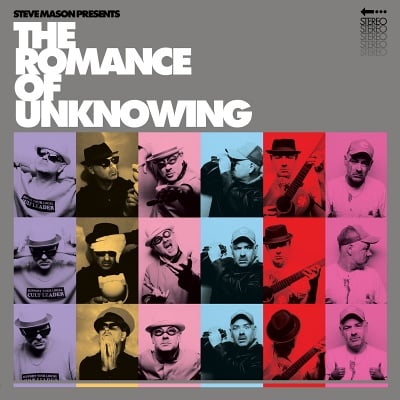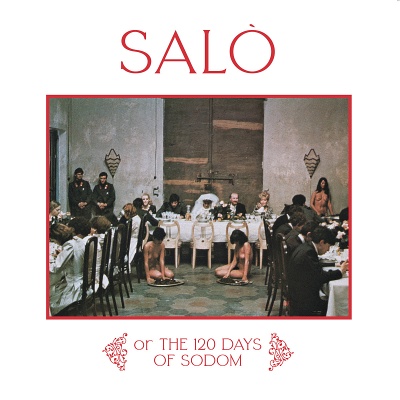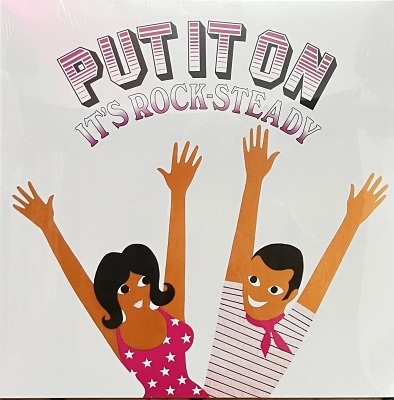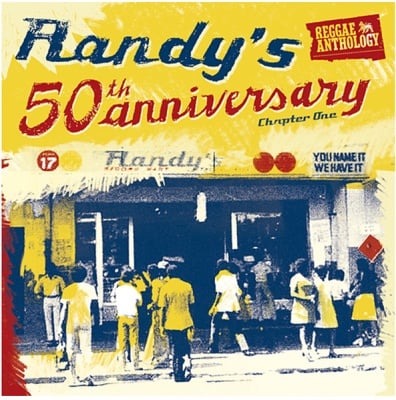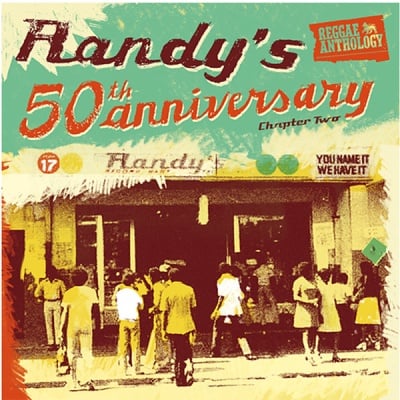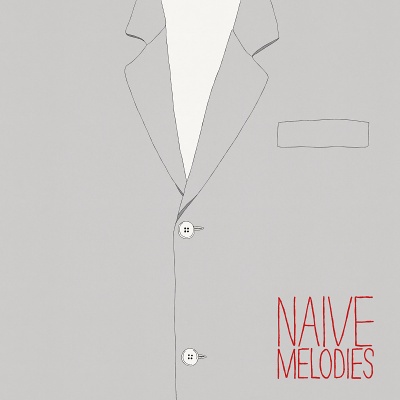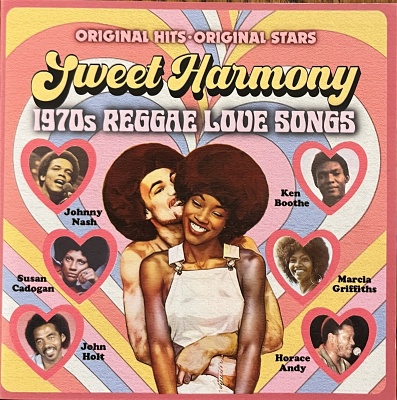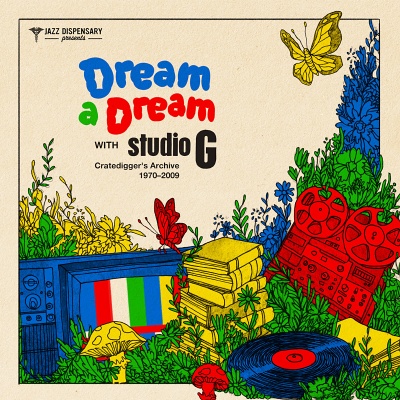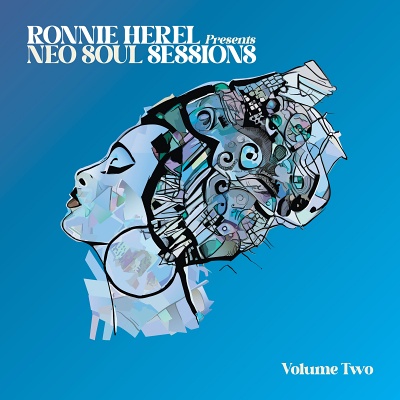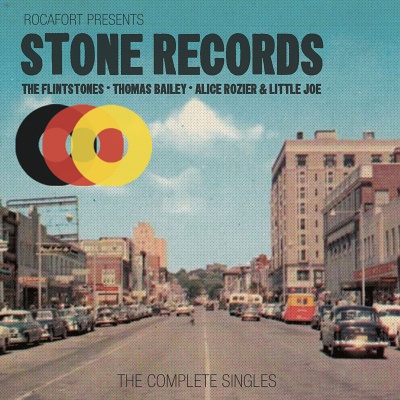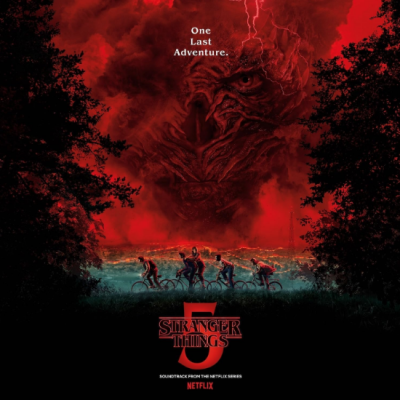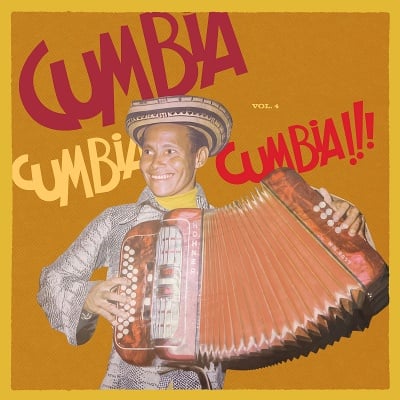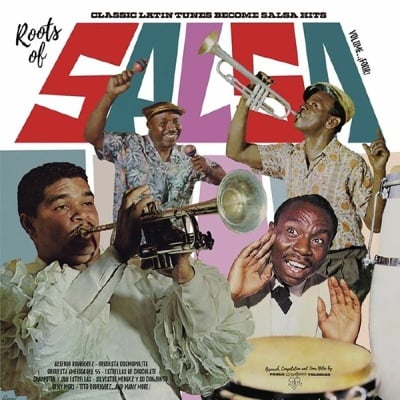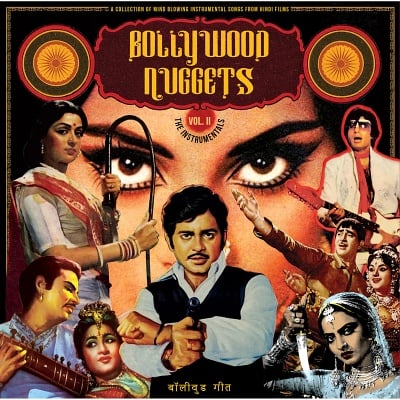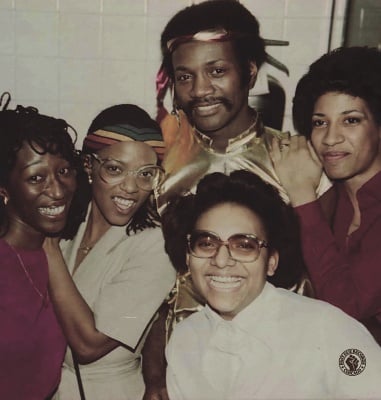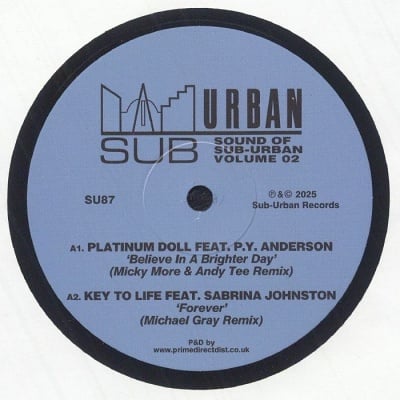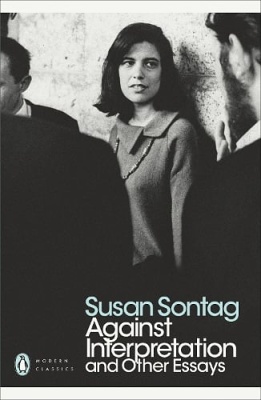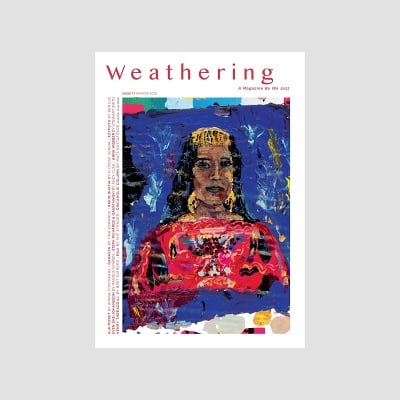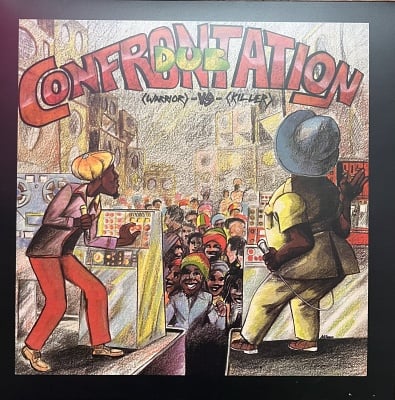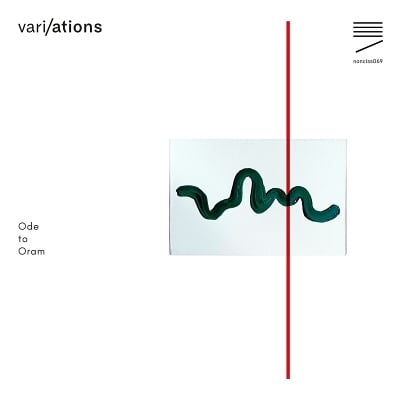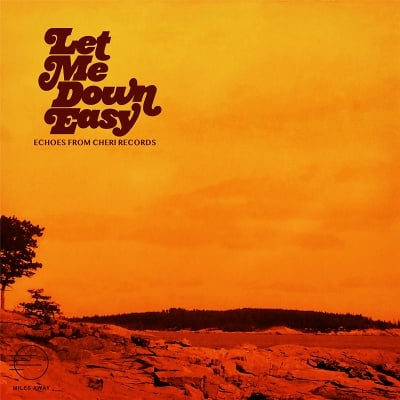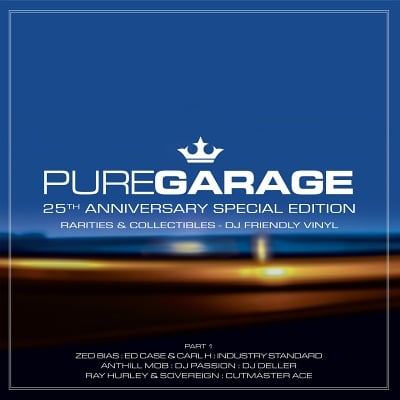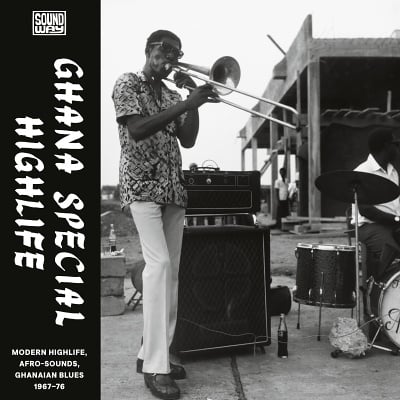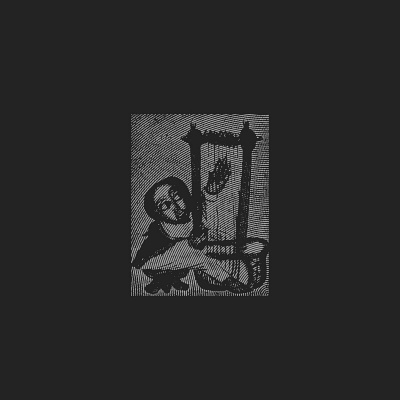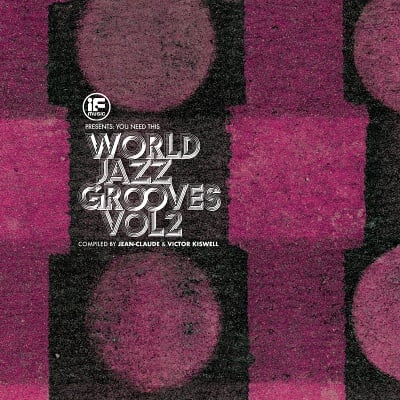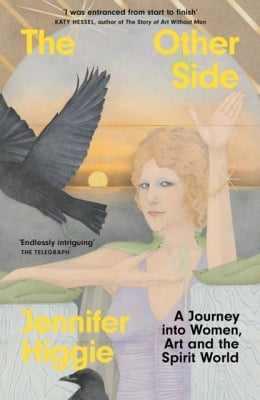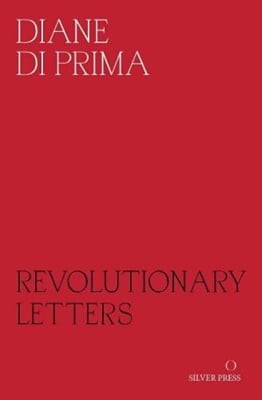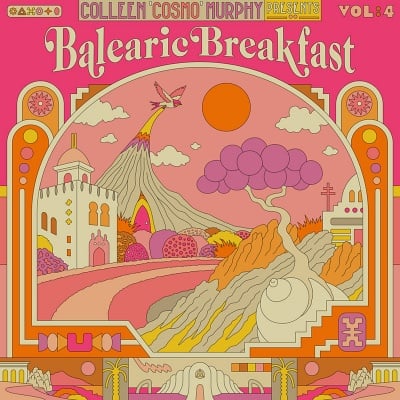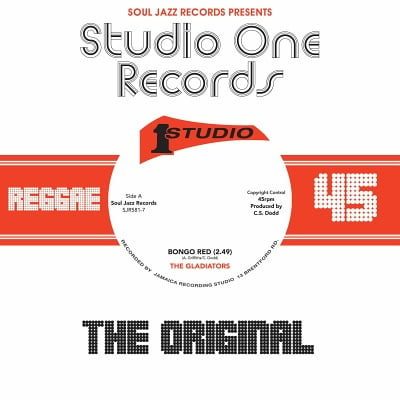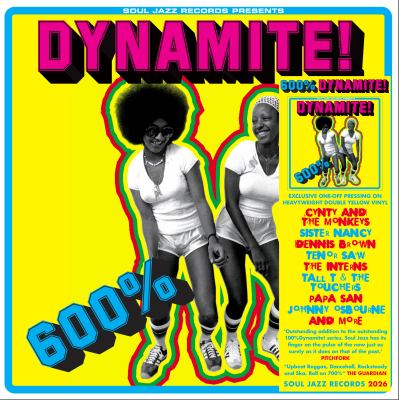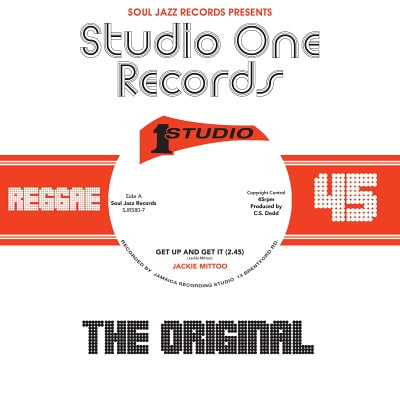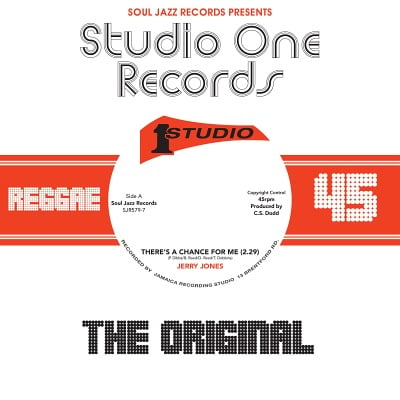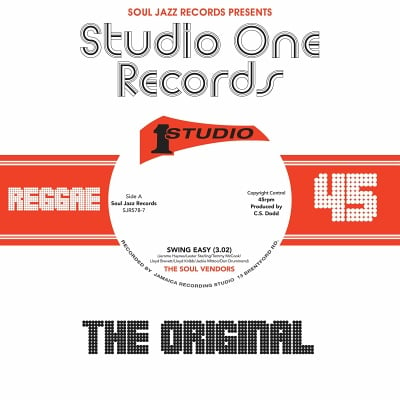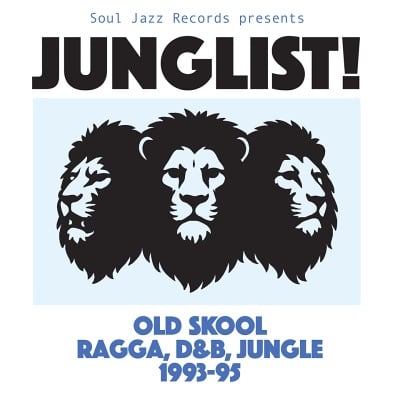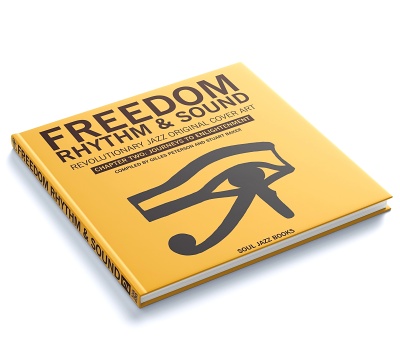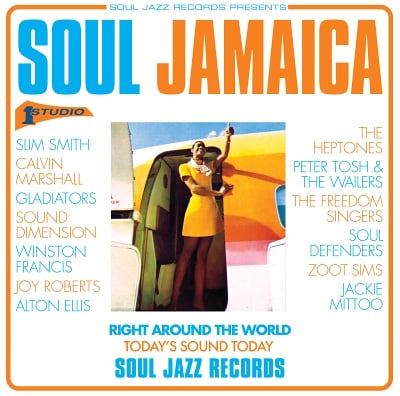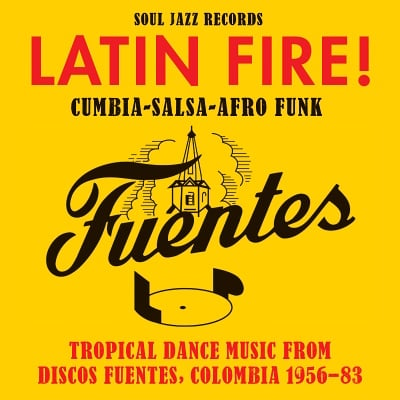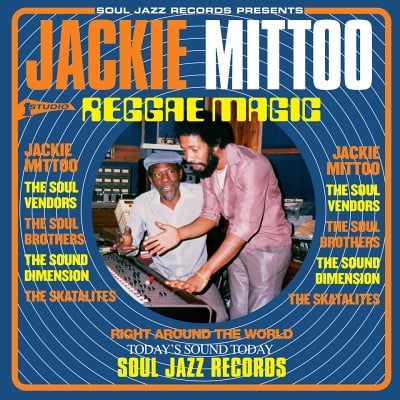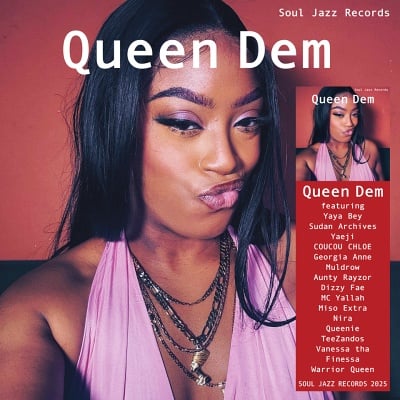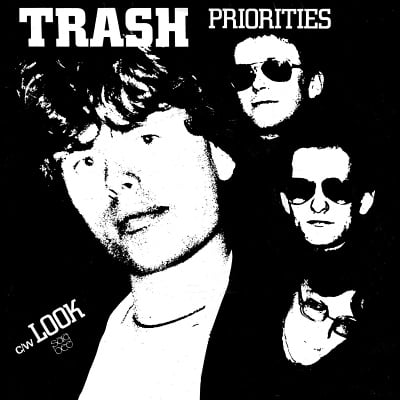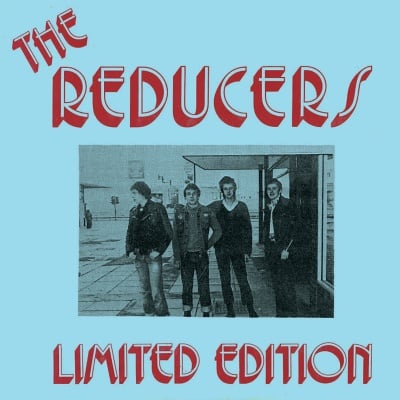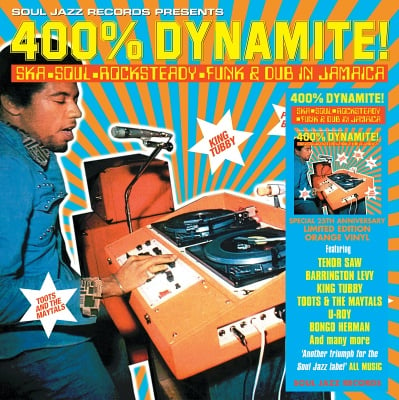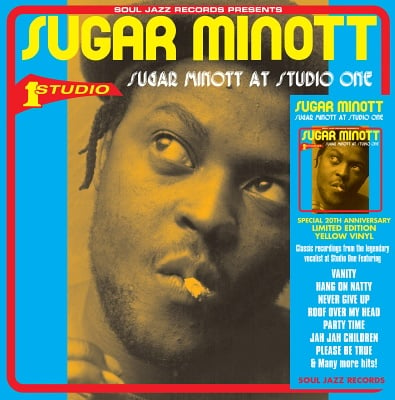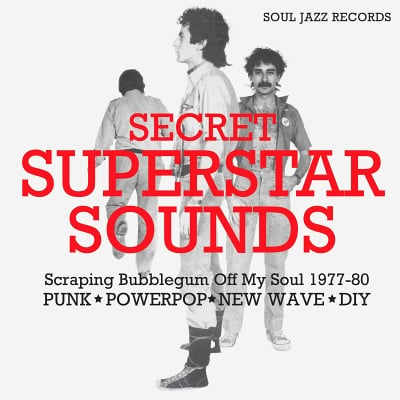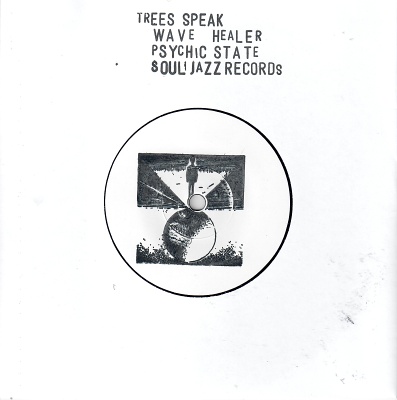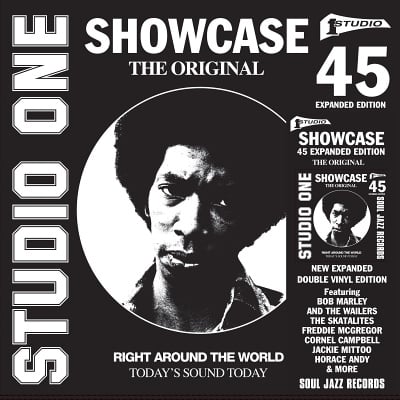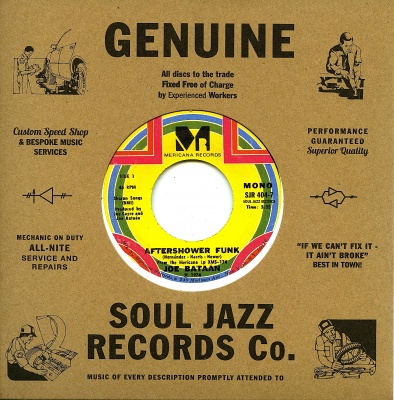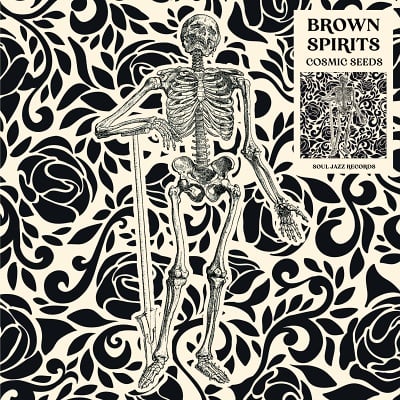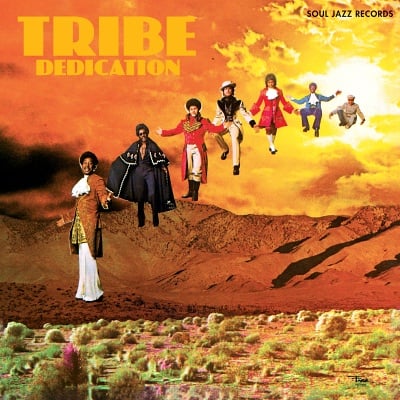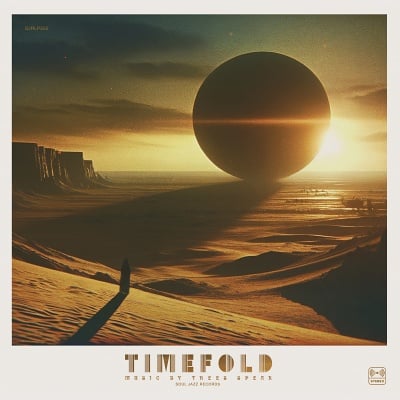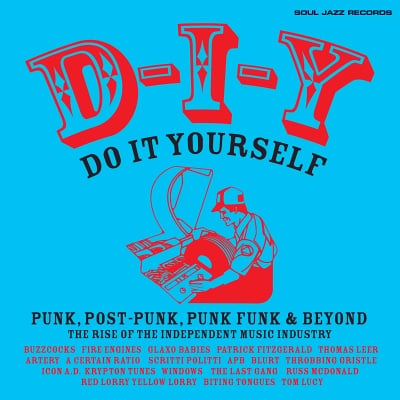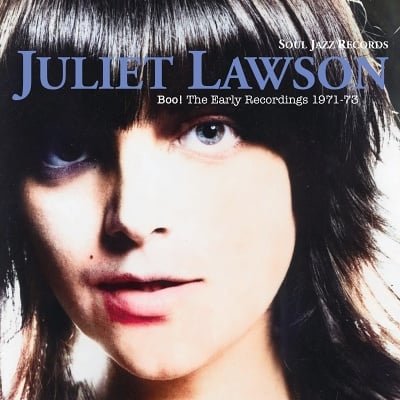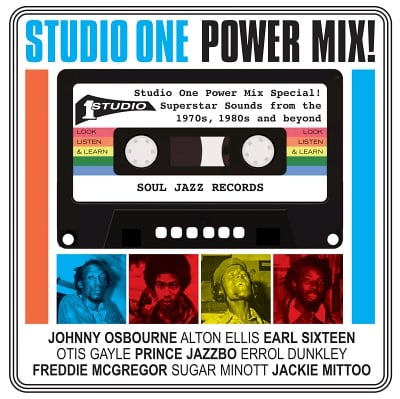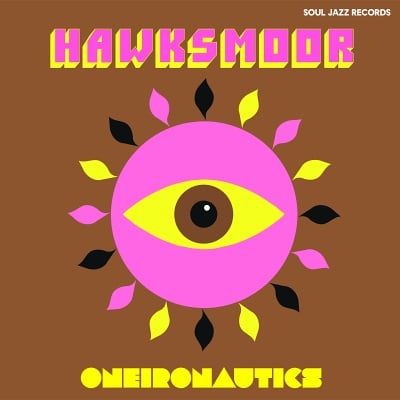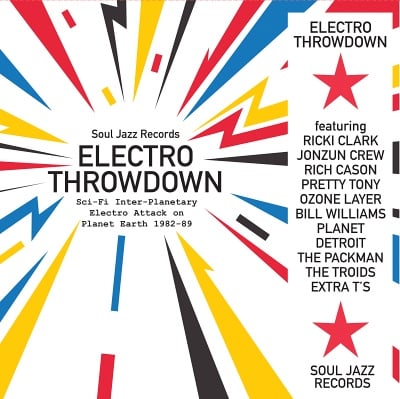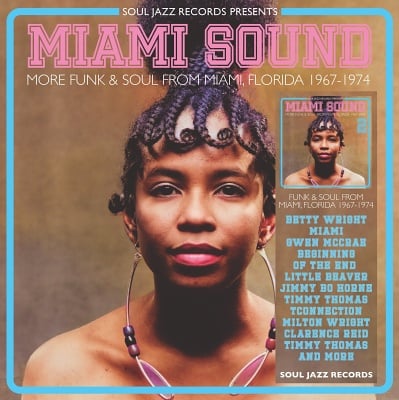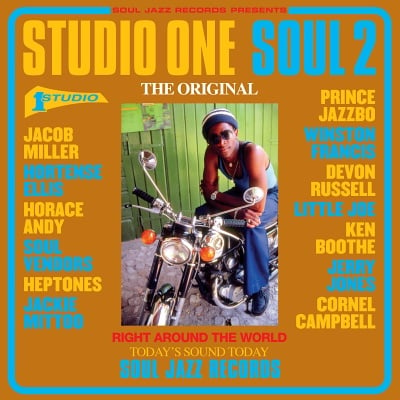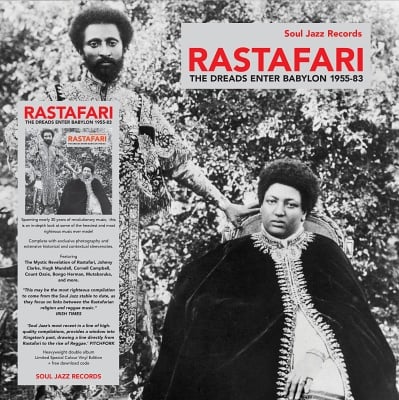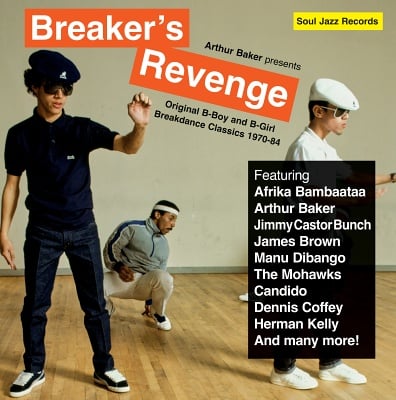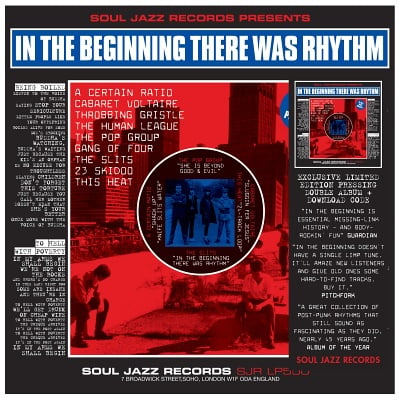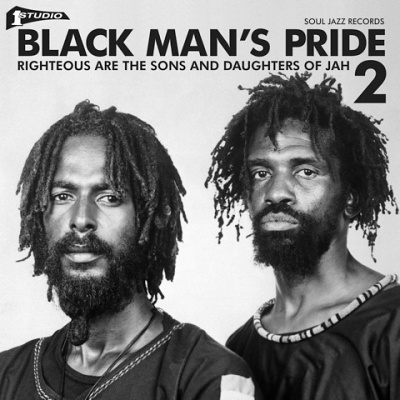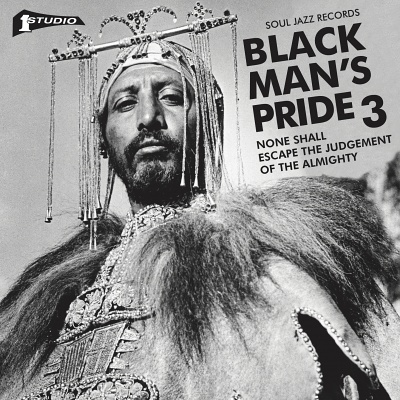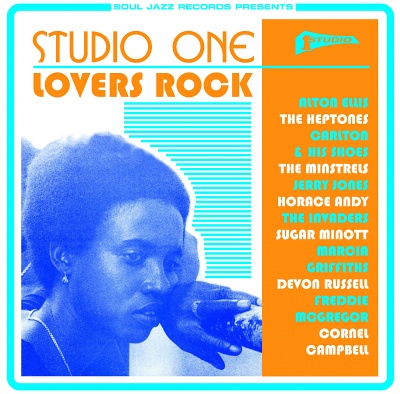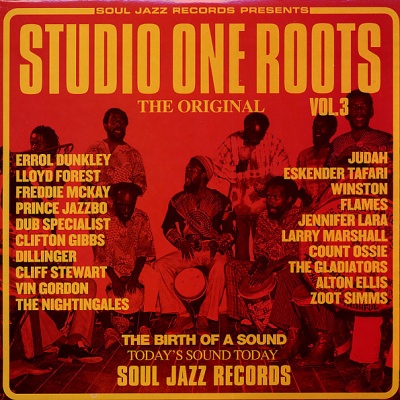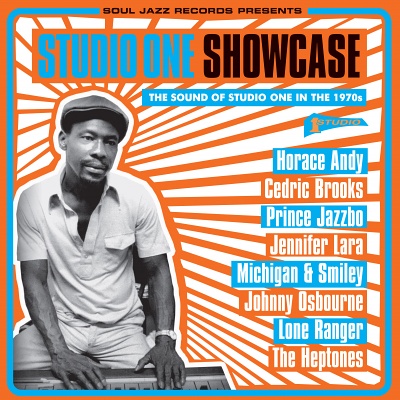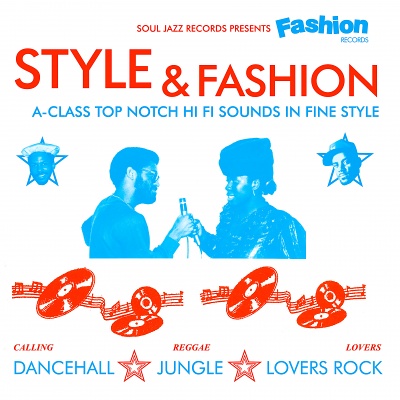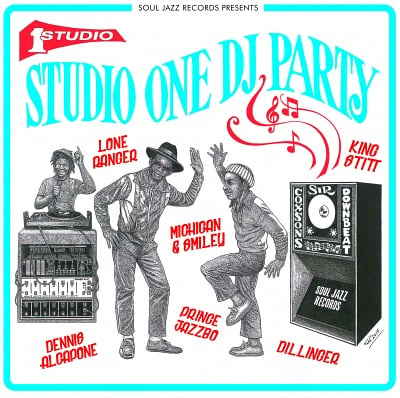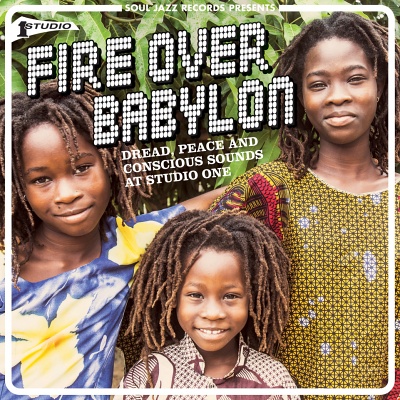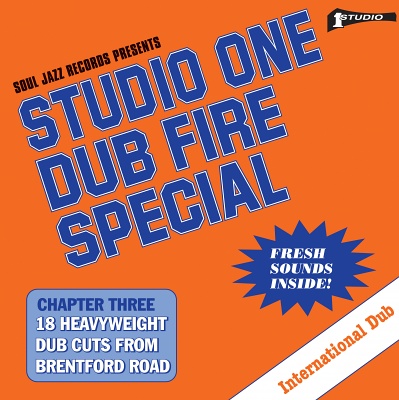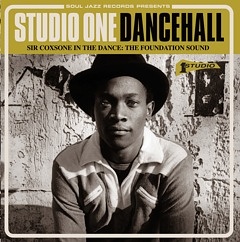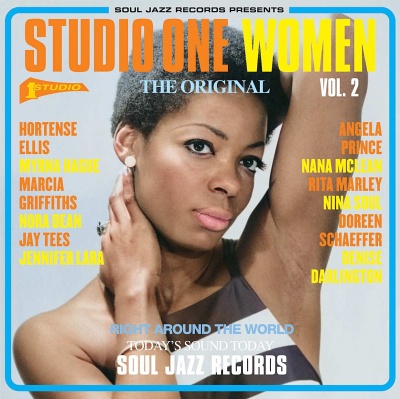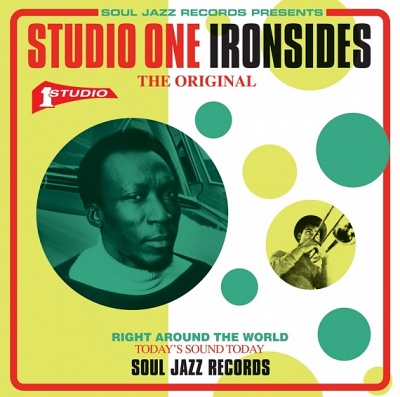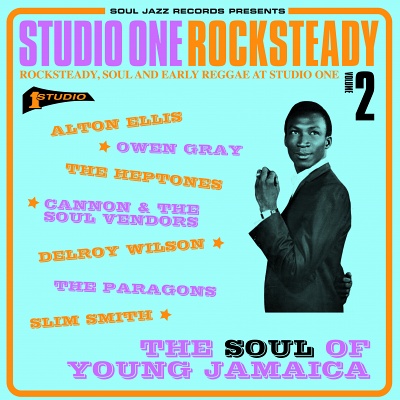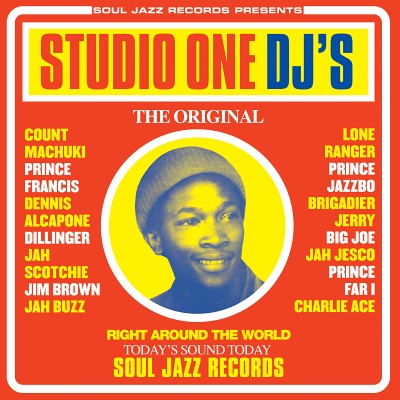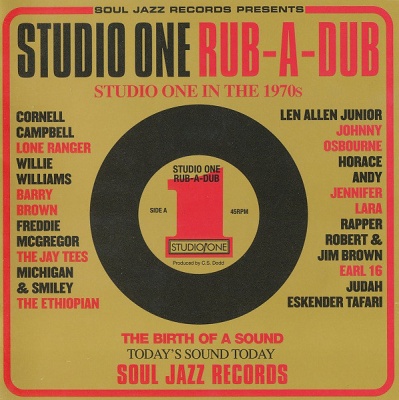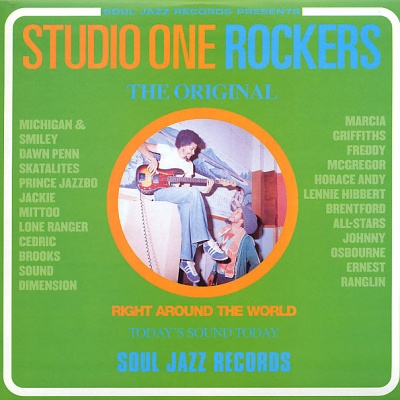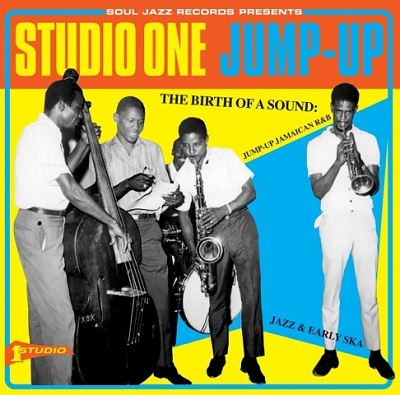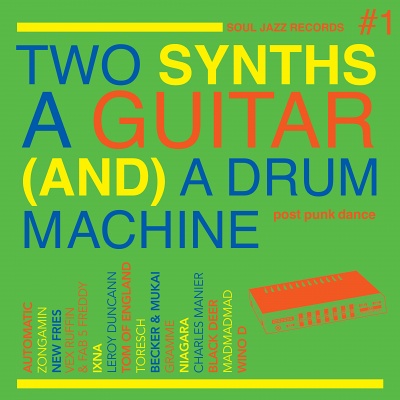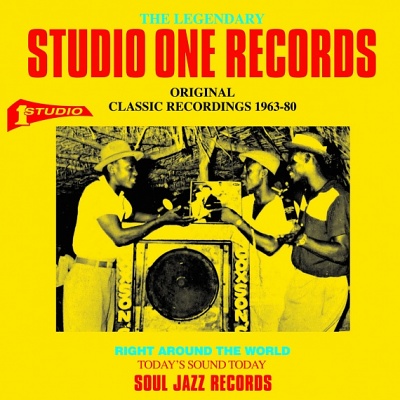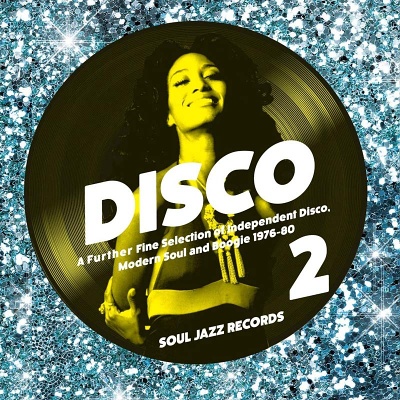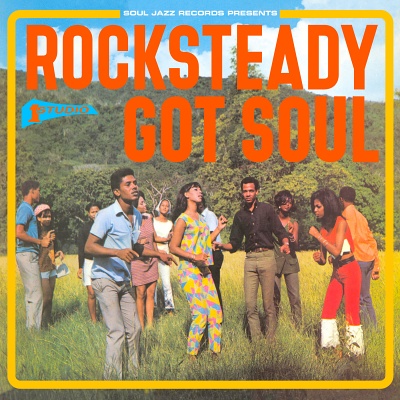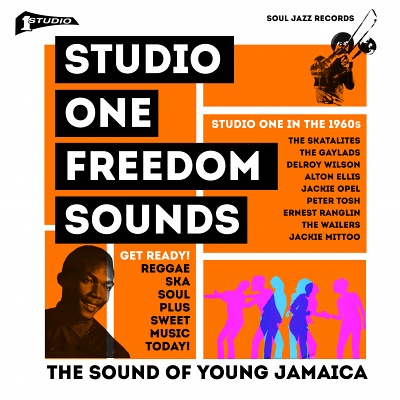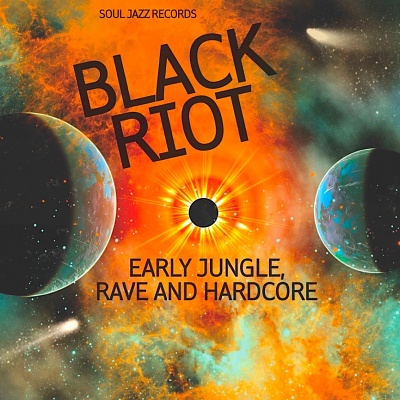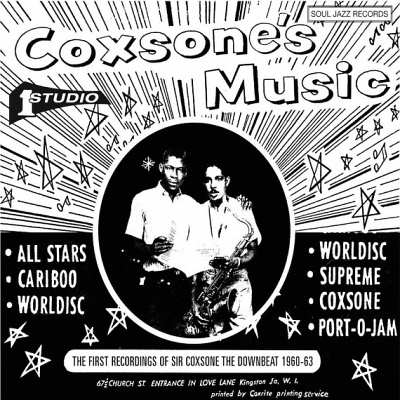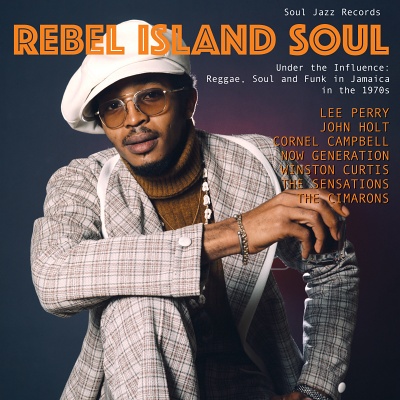
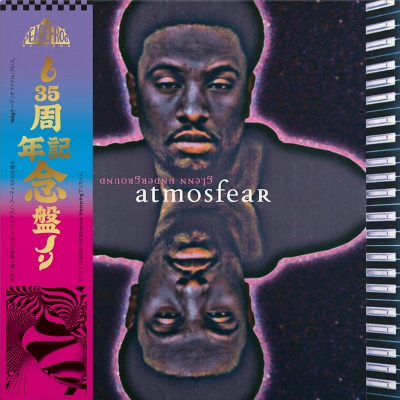
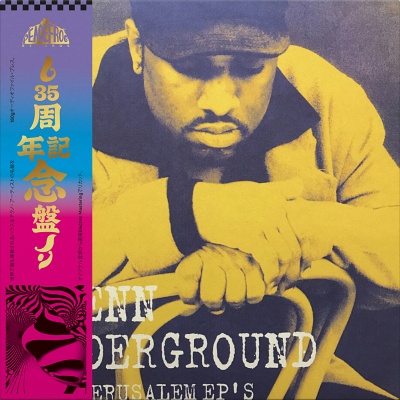
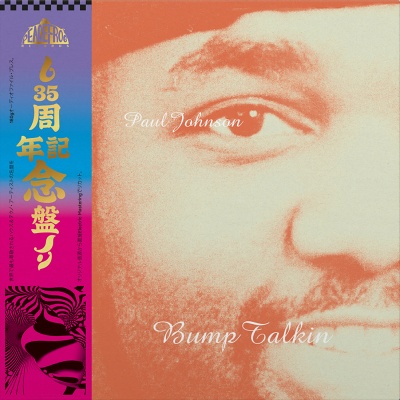
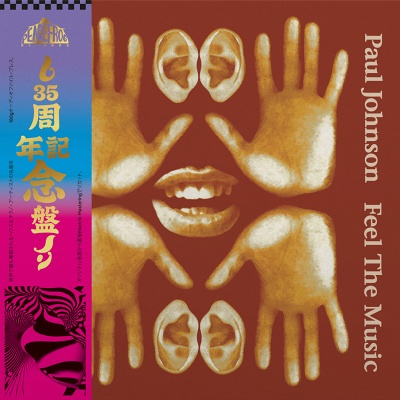


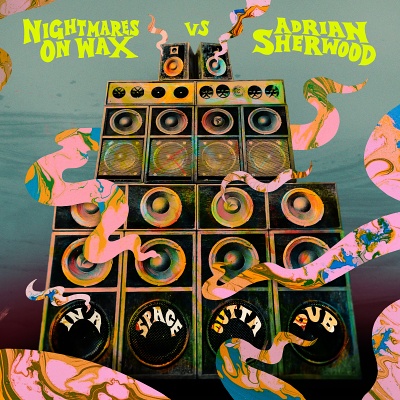
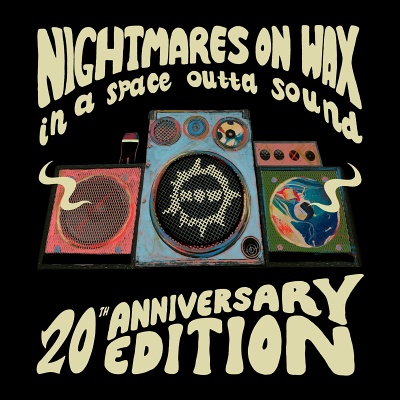

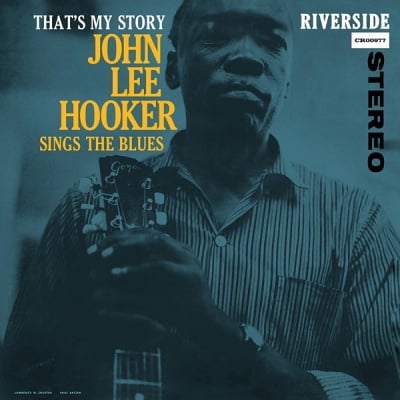


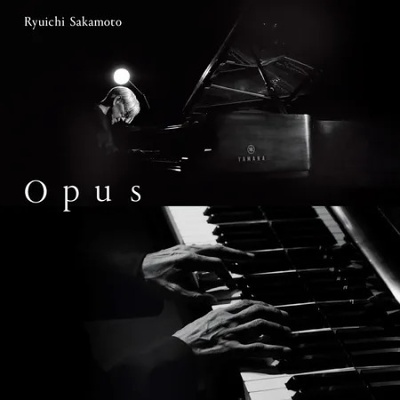

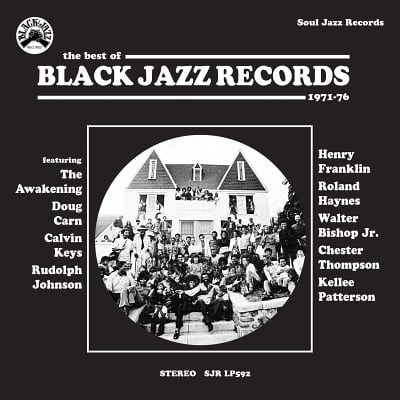
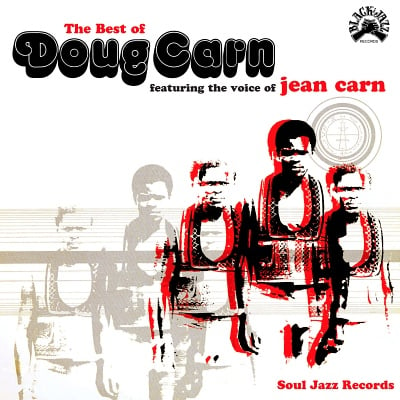

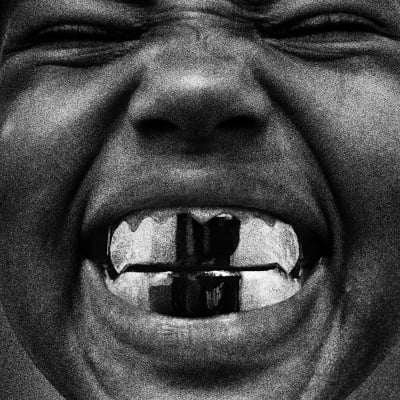
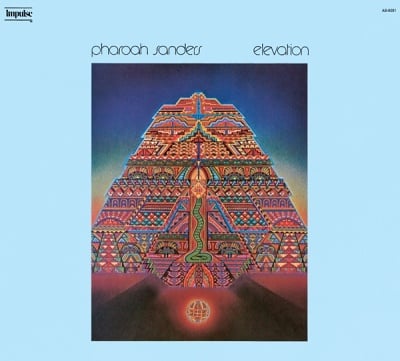


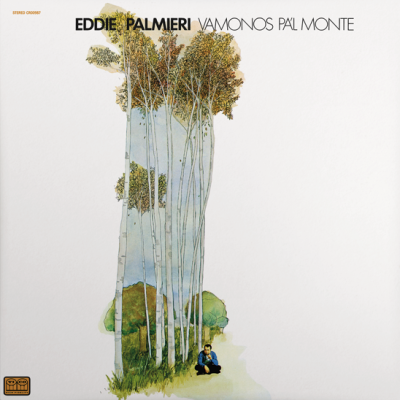
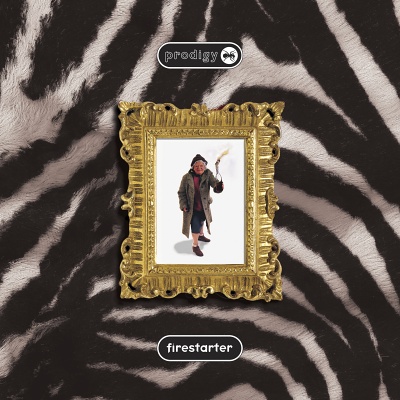
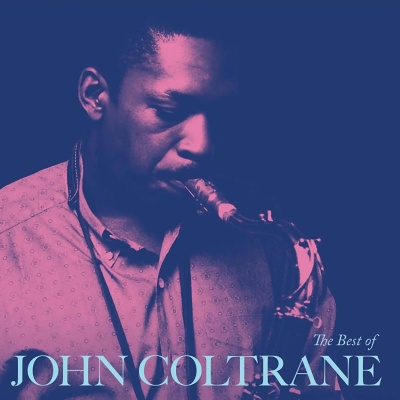
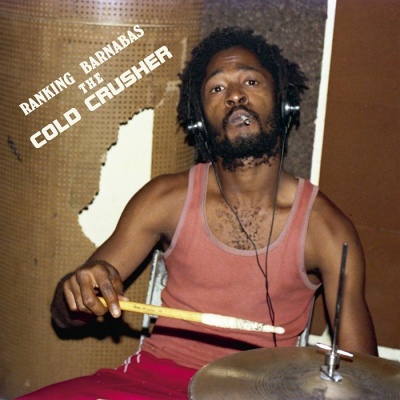

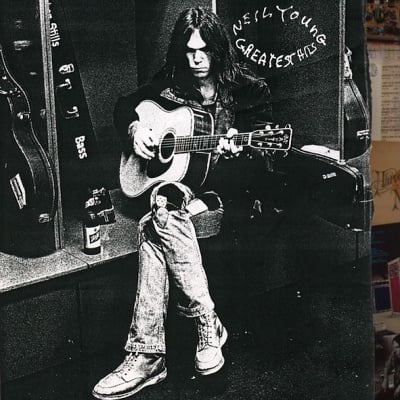
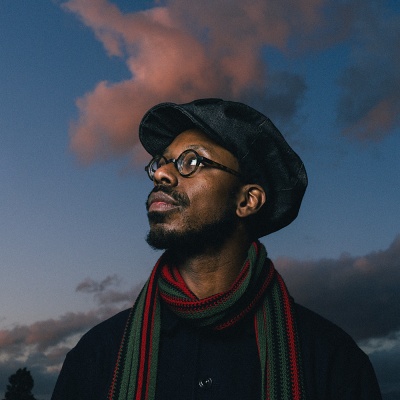
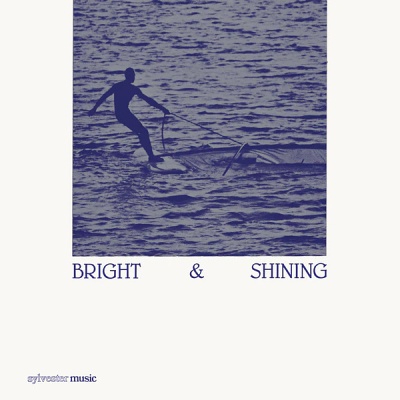
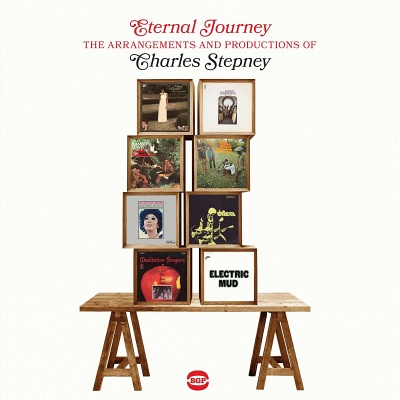

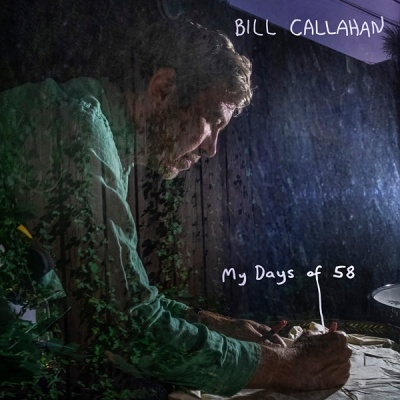

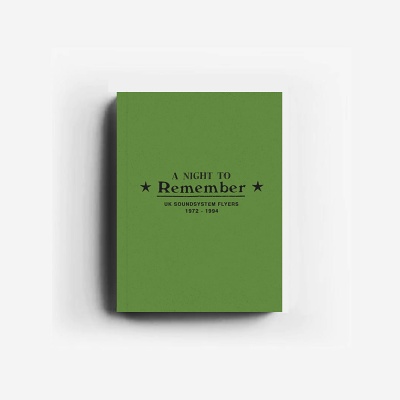

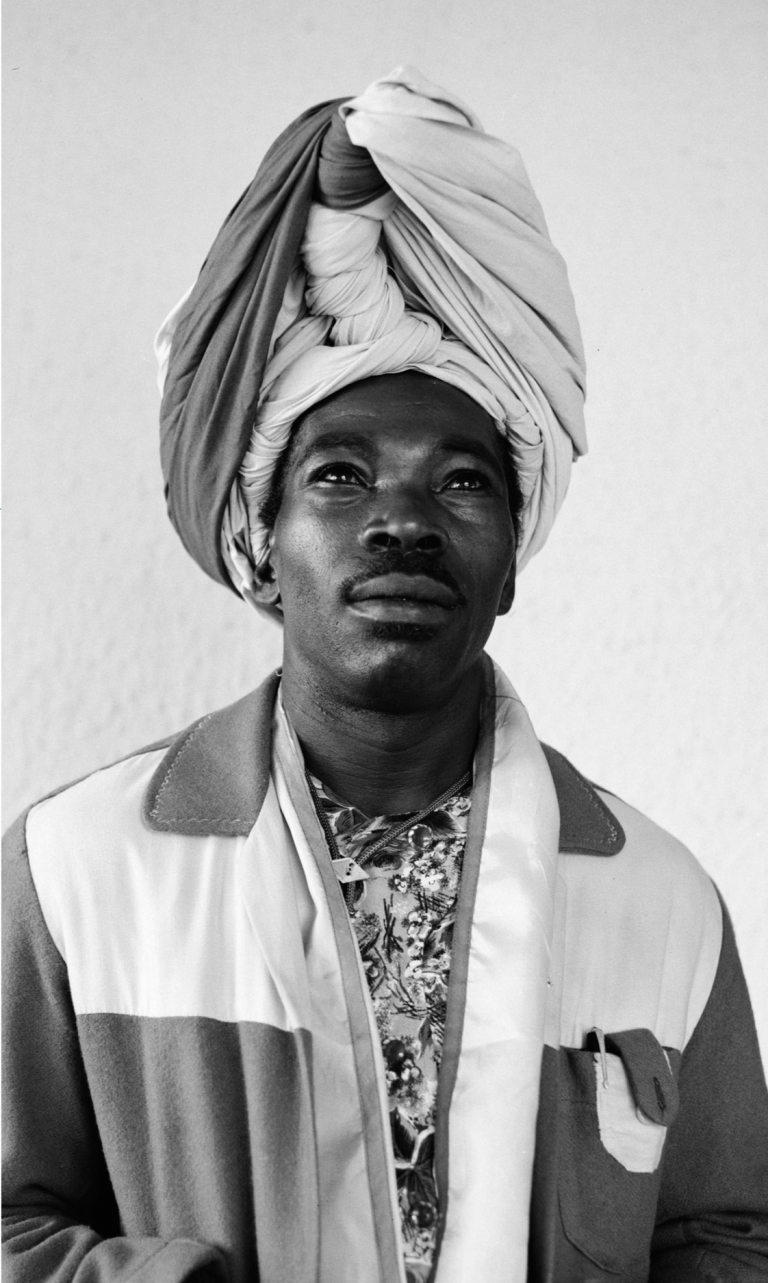
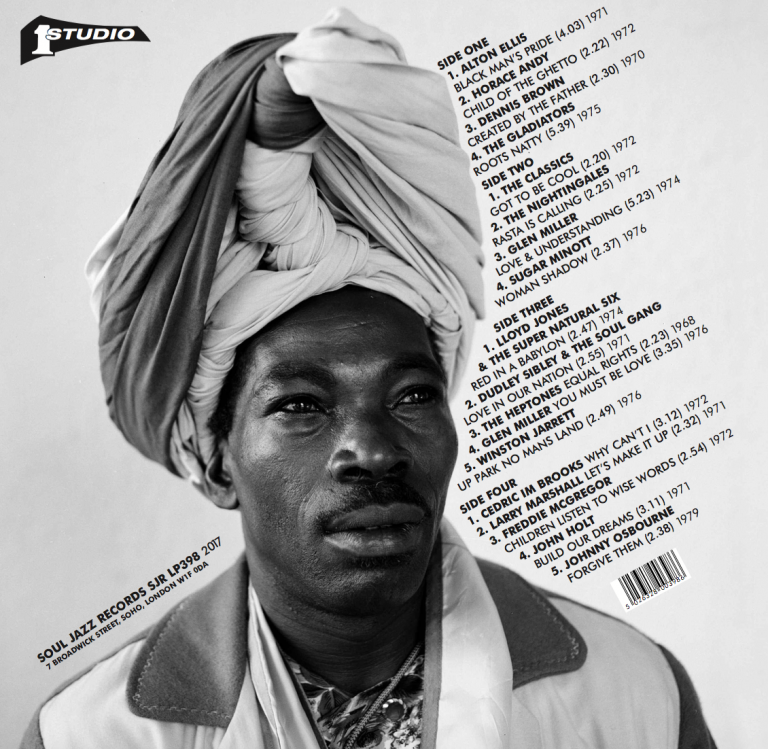
- 2xLP + Download Code SJRLP398£28.00Out of stock Notify me when in stock
- CD SJRCD398£12.00In stockAdd to Bag
- MP3 Release SJRD398£9.99In stockAdd to Bag
- Alton Ellis – Black Man's Pride
- Horace Andy – Child Of The Ghetto
- Dennis Brown – Created By The Father
- The Gladiators – Roots Natty
- The Classics – Got To Be Cool
- The Nightingales – Rasta Is Calling
- Glen Miller – Love & Understanding
- Sugar Minott – Woman Shadow
- Lloyd Jones & The Supernatural Six – Red In A Babylon
- Dudley Sibley & The Soul Gang – Love In Our Nation
- The Heptones – Equal Rights
- Glen Miller – You Must Be Love
- Winston Jarrett – Up Park No Mans Land
- Cedric Im Brooks – Why Can't I
- Larry Marshall – Let's Make It Up
- Freddie McGregor – Children Listen To The Wise Words
- John Holt – Build Our Dreams
- Johnny Osbourne – Forgive Them
- 1. Alton Ellis – Black Man's Pride
- 2. Horace Andy – Child Of The Ghetto
- 3. Dennis Brown – Created By The Father
- 4. The Gladiators – Roots Natty
- 5. The Classics – Got To Be Cool
- 6. The Nightingales – Rasta Is Calling
- 7. Glen Miller – Love & Understanding
- 8. Sugar Minott – Woman Shadow
- 9. Lloyd Jones & The Supernatural Six – Red In A Babylon
- 10. Dudley Sibley & The Soul Gang – Love In Our Nation
- 11. The Heptones – Equal Rights
- 12. Glen Miller – You Must Be Love
- 13. Winston Jarrett – Up Park No Mans Land
- 14. Cedric Im Brooks – Why Can't I
- 15. Larry Marshall – Let's Make It Up
- 16. Freddie McGregor – Children Listen To The Wise Words
- 17. John Holt – Build Our Dreams
- 18. Johnny Osbourne – Forgive Them
While the righteousness of blackness is at the heart of the Rastafarian faith, this collection illustrates how black pride remained a central theme, if not the defining essence, at the very core of all the music created at Studio One Records.
Black Man’s Pride is the striking new Studio One collection of deep heavyweight reggae featuring Horace Andy, Alton Ellis, The Gladiators, Sugar Minott, The Heptones, Freddie McGregor, Cedric Brooks & more.
In order to understand the centrality of black identity in the music created at Studio One, we need look no further than Clement ‘Sir Coxsone’ Dodd who, who created the first black-owned record company in Jamaica.
In similar fashion Alton Ellis’s defining ‘Black Man’s Pride’ brings up emotions that are at the heart of many of these uplifting songs. Alton Ellis’ birthplace was the Trench Town ghetto of Kingston, also the birthplace of The Wailers, Ken Boothe and many other Studio One luminaries.
Clement Dodd established a musical empire firmly rooted by the core musicians working at Studio One many of whom came out of the Alpha School for Wayward Boys, run by Roman Catholic nuns, whose luminaries include Don Drummond, Johnny Moore, Leroy ‘Horsemouth’ Wallace, Cedric Brooks, Vin Gordon, Tommy McCook & more.
Many of the songs featured here come from the transitory phase in reggae at the start of the 1970s. After the exhilaration of Ska and following the cooling down of Rocksteady. While reggae awaited the arrival of roots, Studio One’s vocalists were already producing some of the moodiest music imaginable! Here are 18 heavyweight tunes, both classic cuts and super-rare tunes!
This new album is released as a heavyweight gatefold double-LP edition (+ download code), CD and digital with full text.
REVIEW
"The bottomless pit that is Coxsone Dodd’s Studio One label(s) yields more gems. Soul Jazz and before it, Heartbeat in the US, United Artists, Bamboo and various other labels in the UK have released numerous collections, yet the catalogue remains largely under-exploited, despite the late Mr Dodd’s tireless efforts to wring every last cent from it in unlikely ways. Little wonder that some reggae fans, spoilt by knowledge and racks of original vinyl, can be inclined to shrug when another comp emerges: there have been so many. However, Soul Jazz’s albums are different: not only have they encouraged a new, younger audience, parallel to the one that enjoys rare funk and spiritual jazz, to appreciate this music, their records are coherent. They’re not just a heap of tunes that happen to be sharing a black vinyl apartment. They’re themed and meld musically. They have a reason to exist.
In this instance, that reason is an exploration of (mostly) 70s vocal roots reggae with a theme of black pride and dignity. This music was recorded as a cultural statement, if not a cry, from the roots; strong stuff, deep, dark and heavy. But don’t mistake that for leaden. It may have bass frequencies that drive your neighbour’s dog under the sofa, thinking it’s 5 November all over again, but this is no gloomy exercise in musical storm clouds. Right from Alton Ellis’s title-donating opening tune, there are aspects of Black Man’s Pride that will have you skipping around the room, literally or mentally, and thanking Jah that you didn’t spend the money it cost you on a pizza, dough balls and Diet Coke meal deal. This is not musical junk food, it’s a keeper fit to lift the heart whenever needed.
One reason for this is the sequencing. Glen Miller (not that one) may have a light, soulful voice but the rhythm track he’s riding on Love And Understanding is a minor chord churner, as sad as a wet Sunday. But it’s held up on either side by Sugar Minott (and an uncredited Gladiators) floating through Woman Shadow (as sung by The Meditations as Woman Is Like A Shadow), and The Nightingales’ gorgeously swinging Rasta Is Calling, a glorious take on Delroy Wilson’s Cool Operator rhythm that’s a sod to find on 45. The Heptones make a rational case for Equal Rights in a manner that ought to have been perky enough to win them at least an audition for a CBBC presenter’s role. Their lead singer Leroy Sibbles pops up uncredited on John Holt’s heart-lifting yet cool Let’s Build Our Dreams. Heavy 70s roots is gloomy? Nope. Jamaica’s ghettos were suffering; they didn’t need more misery.
There’s also judicious joining up of vocals and their dubwise 45 flipsides: The Gladiators’ Roots Natty is one such. I heard the vocal, and immediately wished it was the devastatingly moving dub cut. Compiler Stuart Baker evidently thought likewise, so it extends to the version. For variety, there’s a lone sax instrumental to wreck things up too: Cedric Brooks’ melodic Why Can’t I.
There’s room for the unique, deep and breathy voice of Larry Marshall. More “international” stars Horace Andy and Dennis Brown are here too, recorded as youths, as is a teenage Freddie McGregor on a rootsy rewrite of Cat Stevens’ Wild World – with what sounds like JS Bach on synth! The set shuts with Johnny Osbourne’s sophisticated and spiritually openhearted Forgive Them.
With an informative, eminently enjoyable sleeve note about the growth of roots reggae and its place in Rastafarianism and black awareness, fittingly Black Man’s Pride lacks nothing." Ian McCann, RECORD COLLECTOR
- – Oby Onyioha - Raid Dem Jah
- – Alphonsus Idigo - Mystic World
- – Sheila & Des Majek - Mother Nature
- 6. – Oby Onyioha - Raid Dem Jah
- 10. – Alphonsus Idigo - Mystic World
- 11. – Sheila & Des Majek - Mother Nature
- View full info and tracklisting
- 2×LP LPSNDW162£28.99Expected 27 MarPreorder
- – Po Lazarus
- – Big Rock Candy Mountain
- – You Are My Sunshine
- – Down To The River To Pray
- – I Am A Man Of Constant Sorrow
- – Hard Time Killing Floor Blues
- – I Am A Man Of Constant Sorrow
- – Keep On The Sunny Side
- – I'll Fly Away
- – Didn't Leave Nobody But The Baby
- – In The Highways
- – I Am Weary (Let Me Rest)
- – I Am A Man Of Constant Sorrow
- – O Death
- – In The Jailhouse Now
- – I Am A Man Of Constant Sorrow
- – Indian War Whoop
- – Lonesome Valley
- – Angel Band
- 1. – Po Lazarus
- 2. – Big Rock Candy Mountain
- 3. – You Are My Sunshine
- View full info and tracklisting
- 2×LP 7886119£36.99In stockAdd to Bag
- – Roland Bocquet - Fête
- – Alice Swoboda - think it’s Time (You Were Mine)
- – Mary Love - Lay this Burden Down
- – Stoney and Meatloaf - What You See is What You Get
- – Alan Price - Left over People
- – Bobby Conn - Never Get Ahead
- – The Snivelling Shits - Terminal Stupid
- – Sailor - A Glass of Champagne
- – Supersempfft - I See Stars
- – Demis Roussos - I Dig You
- – Ron Rogers - YaYa (Nelue Rework Mutant Disco Edit)
- – The Staple Singers - Slippery People (Club Version)
- – Alfie Davison - Love Is a Serious Business
- – Andre Willliams / Velvet Hammer - Happy (Is My Life)
- – Bobby Garrett - My Little Girl
- – Flash and the Pan - Waiting for a Train
- – Bell X1 - Flame (Chicken Lips Version)
- – Method Man - Release Yo’Delf (Prodigy Remix)
- – Aaron Carl - Hateful
- – St. Germain - Rose Rouge
- – Big Hard Excellent Fish - Imperfect List Pt.1
- – Rene Halkett / David Jay - Nothing
- 1. – Roland Bocquet - Fête
- 2. – Alice Swoboda - think it’s Time (You Were Mine)
- 3. – Mary Love - Lay this Burden Down
- View full info and tracklisting
- New 2×LP (Coloured Vinyl) BN17LPX£41.99'Pink Rose' coloured vinyl.In stockAdd to Bag
- CD BN17CD£12.99In stockAdd to Bag
- – Put It On
- – Doctor Dick
- – Rude Boy Gone Jail
- – Dancing Mood
- – Save A Bread
- – Darling I Love You
- – I've Got To Go Back Home
- – Dance All Night
- – Let The Little Girl Dance
- – Feel Good
- – See Them A Come
- – Won't You Come Home Baby
- – It's Raining
- – Somebody's Baby
- 1. – Put It On
- 2. – Doctor Dick
- 3. – Rude Boy Gone Jail
- View full info and tracklisting
- LP KOY008£21.00In stockAdd to Bag
- 2×LP VPRL4256£39.00In stockAdd to Bag
- LP VPRL4257£39.00In stockAdd to Bag
- – Miguel Atwood-Ferguson - Heaven
- – Pachyman - Sugar On My Tounge (Dub)
- – WITCH - Once In A Lifetime
- – Georgia Anne Muldrow - Girlfriend Is Better
- – Wu-Lu - Mind
- – Astronne - Psycho Killer
- – Kenny Dope - Born Under Punches (The Heat Goes On) (feat Roisin Murphy)
- – Liv E - I Zimbra
- – Aja Monet - The Book I Read
- – Rosie Lowe - Burning Down The House
- – Roge - Road To Nowhere
- – Vicky Farewell - And She Was
- – Florence Adooni - Crosseyed & Painless
- – Bilal - Seen & Not Seen
- – Theo Croker - Born Under (More) Punches (The Heat Goes On) (feat Theophilus London)
- – Dominique Johnson - Take Me To The River
- – Leon Jean-Marie - This Must Be The Place (Naive Melody)
- 1. – Miguel Atwood-Ferguson - Heaven
- 2. – Pachyman - Sugar On My Tounge (Dub)
- 3. – WITCH - Once In A Lifetime
- View full info and tracklisting
- 2×LP BBE424CLP£31.99In stockAdd to Bag
- 2×CD DB2CD173£17.00In stockAdd to Bag
- – Will Thomson/Paul Mottram - lectrospheres/Incandescence (Psychotropic Hopping Morning)
- – Paul Lewis - Hello Spring
- – Douglas Wood - Making Parts
- – Paul Lewis - Goodbye Autumn
- – Paul Lewis - Colourful Life Suite: Flowers
- – Peter Nicholas - Pastoral Reflections
- – Vince Cross - One Summer's Night
- – James Harpham - Slow Motion
- – James Harpham - Candle Flute/Mexican Motel
- – Cliff Johns - Man O'Vibes
- – James Harpham - Asian Dolls
- – James Harpham - Pastoral
- – James Harpham - Flower Garden
- – Liane Carroll - Sweet Dreams
- – Bob Cort - Humming Song
- – James Harpham - Flight Landing (Space Temple Midnight)
- – John Hyde, Andrew Procter - Promise Of Beauty
- – Trevor Nightingale - On The Wing
- – James Asher/Pete Willsher, Tony Kelly - Extra Silky/Funk Fobia
- – Trevor Nightingale - Wastelands
- – Stan Medcalf / Pete Giles, Sean Houchin - Computer Games/Night Trawler
- – James Asher - Asian Workload
- – John Brown - Slope Soaring
- – James Harpham - Star Blossom
- – David Stoll - Tight Corner
- – John Hyde, Andrew Procter - Private Thoughts
- – Harry Wild - Barcarolle Blues
- 1. – Will Thomson/Paul Mottram - lectrospheres/Incandescence (Psychotropic Hopping Morning)
- 2. – Paul Lewis - Hello Spring
- 3. – Douglas Wood - Making Parts
- View full info and tracklisting
- New LP (Coloured Vinyl) 7270008£31.99In stockAdd to Bag
- 2×LP BBE816CLP£29.99In stockAdd to Bag
- CD BBE816CCD£14.99In stockAdd to Bag
- – Alice Rozier & Little Joe - I'm Gonna Hold On To You
- – Alice Rozier & Little Joe - I Love You
- – Flintstones - Ruby
- – Flintstones - Flintstones
- – Thomas Bailey & The Flintstones Band - Flintstones Shuffle
- – Thomas Bailey & The Flintstones Band - I Need You (Most Of All)
- 1. – Alice Rozier & Little Joe - I'm Gonna Hold On To You
- 2. – Alice Rozier & Little Joe - I Love You
- 3. – Flintstones - Ruby
- View full info and tracklisting
- 3×7" ROC063£27.99In stockAdd to Bag
- New LP (Coloured Vinyl) 19958408091£26.99'Sea Blue Smoke' coloured vinyl.Out of stock Notify me when in stock
- CD 19802973202£13.99In stockAdd to Bag
- 2×LP VAMPI341£38.99In stockAdd to Bag
- – Tito Puente Y Su Conjunto - Cuando Suenan Los Tambores
- – Orquesta America Del 55 - Calletana
- – Alfonsin Quintana Y Su Conjunto Jovenes Del Cayo - Dulce Con Dulce
- – Cheo Marquetti - Caramelo A Kilo
- 3. – Tito Puente Y Su Conjunto - Cuando Suenan Los Tambores
- 4. – Orquesta America Del 55 - Calletana
- 5. – Alfonsin Quintana Y Su Conjunto Jovenes Del Cayo - Dulce Con Dulce
- View full info and tracklisting
- LP GR039£28.99In stockAdd to Bag
- LP AKENAT6£25.99In stockAdd to Bag
- – Claude Young - Aquatic Collage
- – Molinaro - Sabtal
- – Other Lands - Energy (Replenished)
- – Zopelar - Estrela
- – Jordan GCZ - I Said What I Said
- – EDB - Dream Rivers
- – Volcov - The Pavilion
- – Joe Claussell - A Gentle Gesture
- – Lars Bartkuhn - Born Again (Instrumental)
- – Meftah - 7
- – Stephen Lopkin - Pigment (Part 1)
- – Nu Era - Lost Seven
- 1. – Claude Young - Aquatic Collage
- 2. – Molinaro - Sabtal
- 3. – Other Lands - Energy (Replenished)
- View full info and tracklisting
- 2×LP NERO064£35.99In stockAdd to Bag
- – If You Were Mine (Version 2)
- – Rockin' It In The Pocket (Instrumental)
- – What's In It For Me (Short Mix)
- – Out To Get You (Demo)
- – Love Robots (Version 2)
- – Knock Knock (Demo)
- – Flaunt It
- – Dance 2000
- 1. – If You Were Mine (Version 2)
- 2. – Rockin' It In The Pocket (Instrumental)
- 3. – What's In It For Me (Short Mix)
- View full info and tracklisting
- 2×12" PASTDUELP020£32.99In stockAdd to Bag
- – Platinum Doll - Believe In A Brighter Day (feat PY Anderson) (Micky More & Andy Tee Remix)
- – Key To Life - Forever (feat Sabrina Johnston) (Michael Gray Remix)
- – Deep Zone It's Gonna Be Alright (Help Is On The Way) (feat Ceybil Jefferies) (The Mike & Matty Show)
- – Jazz-N-Groove Keep Givin' Me Love (The Groove Mix)
- 1. – Platinum Doll - Believe In A Brighter Day (feat PY Anderson) (Micky More & Andy Tee Remix)
- 2. – Key To Life - Forever (feat Sabrina Johnston) (Michael Gray Remix)
- 3. – Deep Zone It's Gonna Be Alright (Help Is On The Way) (feat Ceybil Jefferies) (The Mike & Matty Show)
- View full info and tracklisting
- 12" SU87£14.99In stockAdd to Bag
- Book (300g)£12.99In stockAdd to Bag
- Magazine (300g) WJMAG17£18.99128 pages, 170 x 240 mm in size and printed on 140g Edixion paper with laminated 300g Invercote covers.In stockAdd to Bag
- – Mitch Frohman’s Latin Jazz Quartet - Accents Con Ritmo
- – Tito Puente and his Orchestra - Oye Como Va
- – The Bronx Horns - Catch the Feeling
- – Tito Puente’s Top Percussion Ensemble - Rhumba Abierta 1
- – Mitch Frohman’s Latin Jazz Quartet - Cha Cha with the Bronx Horn
- – Tito Puente and his Orchestra - Generation del 80
- – The Bronx Horns - Mitch’s Mambo
- – Tito Puente’s Top Percussion Ensemble - Rhumba Abierta 2
- 1. – Mitch Frohman’s Latin Jazz Quartet - Accents Con Ritmo
- 2. – Tito Puente and his Orchestra - Oye Como Va
- 3. – The Bronx Horns - Catch the Feeling
- View full info and tracklisting
- New LP (Coloured Vinyl)£22.00Limited clear vinyl editionIn stockAdd to Bag
- – Ranking Dub
- – Jahoviah Dub
- – Aggro Dub
- – Bitter Dub
- – Revenge Dub
- – Repatriation Dub
- – Chapter Two
- – Dreader Dub
- – College Dub
- – Afrika Dub
- 1. – Ranking Dub
- 2. – Jahoviah Dub
- 3. – Aggro Dub
- View full info and tracklisting
- LP LAP 12£16.00In stockAdd to Bag
- 2×12" DTRV010£32.99In stockAdd to Bag
- LP NONCLSS069£30.99In stockAdd to Bag
- LP MALP002£25.99Out of stock Notify me when in stock
- CD MACD002£12.99In stockAdd to Bag
- 2×12" PUREMMLP3£32.99In stockAdd to Bag
- New 2×LP (Coloured Vinyl) MRBLP332£35.99'Transparent Blue & Orange' coloured vinyl.In stockAdd to Bag
- LP 5060571363862£25.99In stockAdd to Bag
- LP DEATH090LP£30.99In stockAdd to Bag
- 2×LP BBE585CLP£29.99Out of stock Notify me when in stock
- CD BBE585CCD£14.99In stockAdd to Bag
- Book (350g)£12.99In stockAdd to Bag
- Book (350g)£13.99In stockAdd to Bag
- 2×LP HVNLP237£32.99In stockAdd to Bag
- 2×CD HVNLP237CD£14.99Out of stock Notify me when in stock
- John Holt – You’ll Never Find Another Love Like Mine
- Cornell Campbell – Be Thankful
- Elizabeth Archer & The Equators – Feel Like Making Love
- The Chosen Few – People Make The World Go Round
- Dave & Ansel Collins – Single Barrel
- The Now Generation – Shaft
- The Marvels – Some Day We’ll Be Together
- The Darker Shades Of Black – War
- Winston Curtis – Private Number
- Lee Perry & The Upsetters – Bathroom Skank
- Slim Smith – Watch This Sound
- Winston Francis – Sitting In The Park
- The Sensations – If I Don’t Watch Out
- Carl Bert & The Cimarons – Slipping Into Darkness
- The Darker Shades Of Black – Ball Of Confusion
- Jah Youth – Ain’t No Sunshine
- 1. John Holt – You’ll Never Find Another Love Like Mine
- 2. Cornell Campbell – Be Thankful
- 3. Elizabeth Archer & The Equators – Feel Like Making Love
- View full info and tracklisting
- The Awakening – Mode For D.D.
- Doug Carn – Higher Ground
- Calvin Keys – Aunt Lovey
- Roland Haynes – Eglise
- The Awakening – Slinky
- Walter Bishop Jr. – Coral Keys
- Rudolph Johnson – Diswa
- Henry Franklin – Blue Lights
- Kellee Patterson – Maiden Voyage
- Chester Thompson – Power House
- The Awakening – March On
- Walter Bishop Jr. – Soul Village
- Rudolph Johnson – The Highest Pleasure
- 1. The Awakening – Mode For D.D.
- 2. Doug Carn – Higher Ground
- 3. Calvin Keys – Aunt Lovey
- View full info and tracklisting
- Doug Carn – Little B's Poem
- Doug Carn – Power and Glory
- Doug Carn – Revelation
- Doug Carn – Chant
- Doug Carn – Western Sunrise
- Doug Carn – The Messenger
- Doug Carn – Naima
- Doug Carn – Mighty Mighty
- Doug Carn – Higher Ground
- Doug Carn – Fatherhood
- Doug Carn – Trance Dance
- Doug Carn – Acknowledgement
- Doug Carn – Sweet Season
- Doug Carn – Jihad
- 1. Doug Carn – Little B's Poem
- 2. Doug Carn – Power and Glory
- 3. Doug Carn – Revelation
- View full info and tracklisting
- The Gladiators – Bongo Red
- The Gladiators – Bongo Red Version
- 1. The Gladiators – Bongo Red
- 2. The Gladiators – Bongo Red Version
- View full info and tracklisting
- 7" SJR581-7£13.00In stockAdd to Bag
- Cynty and The Monkees – Lady Lady
- Johnny Osbourne – Buddy Bye
- Dennis Brown – West Bound Train
- Tenor Saw – Golden Hen
- The Interns – Nothing Is Impossible
- Tall T & The Touchers – Touching The President
- Papa San – Give Her the Credit
- Dennis Brown – Wolf & Leopard
- Sister Nancy – Transport Connection
- Tetrack – You're Gonna Lose
- The Bleechers – Come Into My Parlour
- Sandra Reid – Ooh Boy
- Dave and Ansel Collins – Doing Your Own Thing
- Prince Mohammed – Come Mek We Rub A Dub
- Junior Byles – Long Way
- Xterminator – Love Line Version
- The Uniques – Queen Majesty
- 1. Cynty and The Monkees – Lady Lady
- 2. Johnny Osbourne – Buddy Bye
- 3. Dennis Brown – West Bound Train
- View full info and tracklisting
- 2xLP (Limited Edition Coloured Vinyl) + Download Code SJRLP589C£30.00In stockAdd to Bag
- CD SJRCD589£12.00In stockAdd to Bag
- MP3 Release SJRD589£9.99In stockAdd to Bag
- Jackie Mittoo – Get Up and Get It
- Jackie Mittoo – Keep On Dancing
- 1. Jackie Mittoo – Get Up and Get It
- 2. Jackie Mittoo – Keep On Dancing
- View full info and tracklisting
- 7" SJR580-7£13.00In stockAdd to Bag
- Jerry Jones – There's A Chance For Me
- Jerry Jones – Trying Times
- 1. Jerry Jones – There's A Chance For Me
- 2. Jerry Jones – Trying Times
- View full info and tracklisting
- 7" SJR579-7£13.00In stockAdd to Bag
- The Soul Vendors – Swing Easy
- The Soul Vendors – Ringo Rock
- 1. The Soul Vendors – Swing Easy
- 2. The Soul Vendors – Ringo Rock
- View full info and tracklisting
- 7" SJR578-7£13.00In stockAdd to Bag
- M-Beat – Surrender
- Cutty Ranks – Original Ranks (Just Jungle Remix)
- DJ Vern and DJ Ash – Squeeze
- Dub Two (Bizzy B & TDK) – Big Things
- Redrose – Jungle Tempo
- Krome & Time – Ruffneck Scouts
- Terror Fabulous – Ragga Ragga Ragga (Whitehouse Crew Remix)
- M-Beat – Rumble
- Brainkillers – Screw Face
- Poison Chang – Love The Woman (DJ Rap Remix)
- Bizzy B & MT – Dub Select
- Top Cat – Bunn The Sensi (Dub Hustlers Remix)
- Josey Wales, Beenie Man & Ini Kamoze – Build Me 3 Coffins (New Blood Crew Remix)
- Lemon D – Jah Love
- 1. M-Beat – Surrender
- 2. Cutty Ranks – Original Ranks (Just Jungle Remix)
- 3. DJ Vern and DJ Ash – Squeeze
- View full info and tracklisting
- 2×LP SJRLP588£28.00In stockAdd to Bag
- CD SJRCD588£12.00In stockAdd to Bag
- MP3 Release SJRDD588£9.99In stockAdd to Bag
- SJ Book (2.2kg) SJR586£39.99 £35.00In stockAdd to Bag
- Alton Ellis – Tumbling Tears
- Winston Francis – Turn Back The Hands Of Time
- Sound Dimension – Sing A Simple Song
- The Gladiators – Fling It Gimme
- Jackie Mittoo – Soul Finger
- Winston Francis – Groovy Situation
- Calvin Marshall – La La 69
- Soul Defenders – Way Back Home
- The Heptones – Young, Gifted and Black
- Im and David – Up Fully
- Slim Smith – Keep That Light
- Sound Dimension – Give It Away
- Zoot Simms – Real Gone Loser
- Sound Dimension – Soul Bowl
- Peter Tosh and The Wailers – Can’t You See
- Joy Roberts – Someday We’ll Be Together
- The Freedom Singers – Give Peace A Chance
- 1. Alton Ellis – Tumbling Tears
- 2. Winston Francis – Turn Back The Hands Of Time
- 3. Sound Dimension – Sing A Simple Song
- View full info and tracklisting
- 2xLP (+ Download Code) SJRLP574£28.00Out of stock Notify me when in stock
- CD SJRCD574£12.00In stockAdd to Bag
- MP3 Release SJRD574£9.99In stockAdd to Bag
- Fruko y Sus Tesos – El Vidriero
- Climaco Sarmiento y Su Orquesta – Guiro y Guacharaca
- Afrosound – El Regresso De E.T.
- Los Corraleros de Majagual – Cumbia Campesina
- Wganda Kenya – Shakalaode
- Afrosound – La Sampuesana
- Peregoyo y Su Combo Vacana – Descarga Vacana
- Fruko y Sus Tesos – Salsa Na Ma
- Wganda Kenya – Fiebre De Lepra
- Latin Brothers – Duelo De Picoteros
- Pedro Laza y Sus Pelayeros – Navidad Negra
- Afrosound – Carruseles
- Los Alegres Diablos – La Magdalena
- Latin Brothers – No Es Negra Es Morena
- La Sonora Cienaguera – La Piojosa
- Fruko y Sus Tesos – Cantando Mi Son Muero
- Juan Piña y Sus Muchachos – La Nena
- Afrosound – La Danza De Los Mirlos
- Michi Sarmiento y Su Combo Bravo – Salsa Con Monte
- Conjunto Lirico Vallenato – Cumbia Cienaguera
- 1. Fruko y Sus Tesos – El Vidriero
- 2. Climaco Sarmiento y Su Orquesta – Guiro y Guacharaca
- 3. Afrosound – El Regresso De E.T.
- View full info and tracklisting
- 2xLP + Download Code SJRLP577£28.00In stockAdd to Bag
- CD SJRCD577£12.00In stockAdd to Bag
- Jackie Mittoo – Melody Maker
- The Soul Vendors – Full Range
- Jackie Mittoo – Ghetto Organ
- Jackie Mittoo – Toronto Express
- Jackie Mittoo – Black Out
- Jackie Mittoo – Fireball Rock
- Jackie Mittoo – Tropic Island
- Jackie Mittoo – Sure Soul
- Jackie Mittoo – Taste Of Soul
- Jackie Mittoo & Sound Dimension – Soul Stew
- Jackie Mittoo – Reggae Magic
- Jackie Mittoo & Ernest Ranglin – West Of The Sun
- The Skatalites – Hanging Tree
- Jackie Mittoo – Peenie Wallie
- Sound Dimension – Walk Don't Run
- Jackie Mittoo & The Soul Vendors – Ba Ba Boom
- Jackie Mittoo – Dark Of The Moon
- Jackie Mittoo – Full Charge
- 1. Jackie Mittoo – Melody Maker
- 2. The Soul Vendors – Full Range
- 3. Jackie Mittoo – Ghetto Organ
- View full info and tracklisting
- 2xLP + Download Code SJRLP573£28.00In stockAdd to Bag
- CD SJRCD573£12.00In stockAdd to Bag
- MP3 Release SJRD573£9.99In stockAdd to Bag
- COUCOU CHLOE – Nobody
- Yaeji featuring Nappy Nina – Money Can't Buy
- TeeZandos – Lioness
- Sudan Archives – Selfish Soul
- Miso Extra – 1013
- Aunty Rayzor – Kuku Corona
- Yaya Bey – Meet Me In Brooklyn
- COUCOU CHLOE – Pokerface
- Queenie – Okay Twin
- Yaya Bey – Best Thang
- MC Yallah x Debmaster – Kubali
- Dizzy Fae – Solo
- Vanessa Tha Finessa – Bad Bitch Steppin’
- Dubbing Sun & Blue Hill featuring Warrior Queen – Armageddon
- Georgia Anne Muldrow – Big Mama Africa Jam
- Miso Extra featuring NAYANA IZ – Great Taste
- Nira – Train Of Love
- 1. COUCOU CHLOE – Nobody
- 2. Yaeji featuring Nappy Nina – Money Can't Buy
- 3. TeeZandos – Lioness
- View full info and tracklisting
- 2xLP + Download Code SJRLP575£28.00In stockAdd to Bag
- CD SJRCD575£12.00In stockAdd to Bag
- MP3 Release SJRD575£9.99In stockAdd to Bag
- Trash – Priorities
- Trash – Look
- 1. Trash – Priorities
- 2. Trash – Look
- View full info and tracklisting
- 7" SJR510-7£12.00In stockAdd to Bag
- The Reducers – Things Go Wrong
- The Reducers – We Are Normal
- 1. The Reducers – Things Go Wrong
- 2. The Reducers – We Are Normal
- View full info and tracklisting
- 7" SJR509-7£12.00In stockAdd to Bag
- The Cimarons – We Are Not The Same
- Tenor Saw & Buju Banton – Ring The Alarm Quick
- The Gatherers – Words Of My Mouth
- Barrington Levy – Under Mi Sensi
- Dennis Alcapone – Cassius Clay
- The Maytals – 54-46 Was My Number
- General Degree – Pot Cover
- U Roy – Stick Together
- Honey Boy Martin – Dreader Than Dread
- Jackie Mittoo – The Sniper
- Don Carlos – Lazer Beam
- Lynn Taitt & The Jets – Soul Food
- The Granville Williams Orchestra – Hi Life
- Augustus Pablo – Cassava Piece (’79 Style)
- The Versatiles – Children Get Ready
- 1. The Cimarons – We Are Not The Same
- 2. Tenor Saw & Buju Banton – Ring The Alarm Quick
- 3. The Gatherers – Words Of My Mouth
- View full info and tracklisting
- 2xLP (Coloured Vinyl) + Download Code SJRLP566C£34.00In stockAdd to Bag
- Sugar Minott – Vanity
- Sugar Minott – Please Be True
- Sugar Minott – Hang On Natty
- Sugar Minott – Jahovia
- Sugar Minott – Give A Hand
- Sugar Minott – Try Love
- Sugar Minott – Roof Over My Head
- Sugar Minott – Jah Jah Lead Us
- Sugar Minott – Is It True
- Sugar Minott – Love Gonna Pack Up
- Sugar Minott – Give Me Jah Jah
- Sugar Minott – Jah Jah Children
- Sugar Minott – Party Time
- Sugar Minott – Change Your Ways
- Sugar Minott – Never Give Up
- Sugar Minott – Come On Home
- Sugar Minott – Jah Almighty
- 1. Sugar Minott – Vanity
- 2. Sugar Minott – Please Be True
- 3. Sugar Minott – Hang On Natty
- View full info and tracklisting
- 2xLP (Coloured Vinyl) + Download Code SJRLP568C£34.00In stockAdd to Bag
- MP3 Release SJRD104£9.99In stockAdd to Bag
- Gobblinz – London
- Plummet Airlines – It's Hard
- Xdreamysts – Right Way Home
- Tours – Language School
- The Squares – No Fear
- The Monitors – Compulsory Fun
- The Meanies – It's True
- Jeff Hill Band – Something’s Wrong With My Baby
- The Squad – 24 Hours
- Krypton Tunes – Limited Vision
- The Zeros – Hungry
- The Wardens – Do So Well
- The Letters – Nobody Loves Me
- The Tunnelrunners – Forever Crying At Love Songs
- Comic Romance – Cry Myself To Sleep
- 1. Gobblinz – London
- 2. Plummet Airlines – It's Hard
- 3. Xdreamysts – Right Way Home
- View full info and tracklisting
- New LP SJRLP571£26.00In stockAdd to Bag
- CD SJRCD571£12.00In stockAdd to Bag
- MP3 Release SJRD571£9.99In stockAdd to Bag
- – Wave Healer
- – Psychic State
- 1. – Wave Healer
- 2. – Psychic State
- View full info and tracklisting
- 7" SJR565-7£10.00In stockAdd to Bag
- Freddie McGregor – Beat Down Babylon
- Cornel Campbell – No Man's Land
- Judah Eskender Tafari – Danger In Your Eyes
- Tony & Howie – Fun It Up
- Liberation Group – Namibia
- Winston Francis – Love Me Today, Not Tomorrow
- Roland Alphonso – Jah Shakey
- Joe Higgs – Dinah
- Brown Eagle – Natural Living
- Freddie McKay – So Long, Farewell
- Jackie Mittoo – Mixing
- The Heptones – How Can I Leave You
- The Skatalites – Sudden Destruction
- Lone Ranger – Dance A Fe Cork
- Horace Andy – Mamie Blue
- Johnny Osbourne – Run Up Your Mouth
- Bob Marley and The Wailers – One Love
- The Cables – What Am I To Do
- 1. Freddie McGregor – Beat Down Babylon
- 2. Cornel Campbell – No Man's Land
- 3. Judah Eskender Tafari – Danger In Your Eyes
- View full info and tracklisting
- 2xLP (+ Download Code) SJRLP546£28.00In stockAdd to Bag
- CD SJRCD546£12.00In stockAdd to Bag
- MP3 Release SJRD546£9.99In stockAdd to Bag
- Joe Bataan – Aftershower Funk
- Joe Bataan – Fin
- 1. Joe Bataan – Aftershower Funk
- 2. Joe Bataan – Fin
- View full info and tracklisting
- 7" SJR404-7£12.00In stockAdd to Bag
- – Fault Lines
- – Mind Rocker
- – Magnetic Fields
- – Magenta Haze
- – Out Out Out
- – Beat On Repeat
- – Cosmic Seeds
- – Winter Solstice
- 1. – Fault Lines
- 2. – Mind Rocker
- 3. – Magnetic Fields
- View full info and tracklisting
- LP + Download Code SJRLP557£26.00Out of stock Notify me when in stock
- CD SJRCD557£12.00In stockAdd to Bag
- MP3 Release SJRD557£9.99In stockAdd to Bag
- Tribe – Share It
- Tribe – Firesign
- Tribe – Vulcan Voyage
- Tribe – Love You Like A Brother
- Tribe – Ain't Nothing But A Party
- Tribe – Got To Be Something More
- Tribe – Baby Feet
- Tribe – Funky Reggae
- Tribe – Celebrate Your Love
- 1. Tribe – Share It
- 2. Tribe – Firesign
- 3. Tribe – Vulcan Voyage
- View full info and tracklisting
- LP SJRLP533C£30.00In stockAdd to Bag
- – TimeFold
- – Prodrome
- – Digital Oracle
- – Emotion Engine
- – Phenomena
- – Psychic State
- – Xenoworld
- – Post-Truth
- – Chronosphere
- – Among Us
- – Entity System
- – Cybernetics
- – They Know
- – Synchrotron
- – Dreamless
- – Silicon Visions
- – Forever Chemicals
- 1. – TimeFold
- 2. – Prodrome
- 3. – Digital Oracle
- View full info and tracklisting
- LP + Download Code SJRLP555£26.00In stockAdd to Bag
- CD SJRCD555£12.00In stockAdd to Bag
- MP3 Release SJRD555£9.99In stockAdd to Bag
- Buzzcocks – Boredom
- Fire Engines – Everything's Roses
- Glaxo Babies – Shake (The Foundations)
- Patrick Fitzgerald – Babysitter
- Russ McDonald – Looking From The Cooking Pot
- Artery – The Slide
- A Certain Ratio – Si Fermir O Grido
- Scritti Politti – Skank Bloc Bologna
- APB – All Your Life With Me
- Blurt – The Fish Needs A Bike
- Icon A.D. – Fight For Peace
- Throbbing Gristle – Distant Dreams (Part Two)
- Krypton Tunes – Coming To See You
- Windows – Creation Rebel
- The Last Gang – Spirit Of Youth
- Thomas Leer – Tight As A Drum
- Red Lorry Yellow Lorry – Paint Your Wagon
- Biting Tongues – You Can Choke Like That
- Tom Lucy – Paris, France
- 1. Buzzcocks – Boredom
- 2. Fire Engines – Everything's Roses
- 3. Glaxo Babies – Shake (The Foundations)
- View full info and tracklisting
- 2xLP (Coloured Vinyl) + Download Code SJRLP552C£28.00In stockAdd to Bag
- MP3 Release SJRD552£8.99In stockAdd to Bag
- – Dear Fool
- – Igloo
- – Nothing New
- – I Won't Get My Feet Wet Again
- – Who Is India ?
- – Let Me Not Put You Down
- – Only A Week Away
- – Playing Is No Song
- – You're So Right, September
- – The Weeds In The Yard
- – Rolling Back
- – Frog In The Jam
- – Rincón de Luna
- – Voices
- 1. – Dear Fool
- 2. – Igloo
- 3. – Nothing New
- View full info and tracklisting
- LP + 7" SJRLP537£28.00In stockAdd to Bag
- CD SJRCD537£12.00In stockAdd to Bag
- MP3 Release SJRD537£9.99In stockAdd to Bag
- Otis Gayle – What You Won't Do For Love
- Earl Sixteen – Love Is A Feeling
- Alton Ellis – Back To Africa
- Prince Jazzbo – Apollo 16
- Johnny Osbourne – Eternal Peace
- Errol Dunkley – Don't Do It
- Omega – Bounty Hunter
- Noel Bailey and Sound Dimension – Wiggle's Diggles
- Freddie McGregor – I Am Ready
- Prince Jazzbo – Imperial I
- Jackie Mittoo – Lovers Rock
- Devon Russell – Swing and Dine
- Sugar Minott – Guidance
- Dolly Man – Trigger Happy
- Nana McLean – A Little Love
- Tyrone Taylor – Rightful Rebel
- Wailing Souls – All Alone
- Sugar Minott – Revelation
- 1. Otis Gayle – What You Won't Do For Love
- 2. Earl Sixteen – Love Is A Feeling
- 3. Alton Ellis – Back To Africa
- View full info and tracklisting
- 2xLP (+ Download Code) SJRLP549£28.00In stockAdd to Bag
- CD SJRCD549£12.00In stockAdd to Bag
- MP3 Release SJRD549£9.99In stockAdd to Bag
- Hawksmoor – Parallelograms
- Hawksmoor – The Transcendentalist
- Hawksmoor – Glass Teeth
- Hawksmoor – Galadali
- Hawksmoor – Traumzeit
- Hawksmoor – Salpêtrière
- Hawksmoor – Nereides
- Hawksmoor – A Forest In The Sky
- Hawksmoor – Yourcelium
- Hawksmoor – The Oneironaut
- 1. Hawksmoor – Parallelograms
- 2. Hawksmoor – The Transcendentalist
- 3. Hawksmoor – Glass Teeth
- View full info and tracklisting
- LP + Download Code SJRLP554£26.00In stockAdd to Bag
- CD SJRCD554£12.00In stockAdd to Bag
- MP3 Release SJRD554£9.99In stockAdd to Bag
- The Rickie Clark Company – Time To Throw Down
- The Troids – Boogie Troids
- The Packman – I'm The Packman
- Pretty Tony – Fix It In The Mix
- Jazaq – All Systems Go
- Rich Cason – Killer Groove
- The Jonzun Crew – We Are The Jonzun Crew
- Ozone Layer – Planetary Deterioration (Electro Mix)
- Bill Williams and Bileo – Robot People
- Extra T's – E.T. Boogie
- Planet Detroit – Invasion From The Planet Detroit
- Professor X – Professor X (Saga)
- Mo-Jo – Jump, Stomp and Twist (Instrumental)
- 1. The Rickie Clark Company – Time To Throw Down
- 2. The Troids – Boogie Troids
- 3. The Packman – I'm The Packman
- View full info and tracklisting
- 2xLP (+ Download Code) SJRLP547£28.00In stockAdd to Bag
- MP3 Release SJRD547£9.99In stockAdd to Bag
- Betty Wright – Clean Up Woman
- Miami – Party Freaks
- Gwen McRae – All This Love That I'm Givin'
- Beginning Of The End – Monkey Tamarind
- Latimore – I Get Lifted
- Raw Soul Express – Burn The Candle
- Chocolateclay – Free (I'll Always Be)
- Betty Wright – I Love The Way You Love
- Little Beaver – Concrete Jungle
- Jimmy 'Bo' Horne – Clean Up Man
- Timmy Thomas – Africano
- Charles Allen – Winterman
- T Connection – Do What You Wanna Do
- Robert Moore – Jimmie Bo Charlie
- Milton Wright – Keep It Up
- Clarence Reid – Ten Tons Of Dynamite
- Timmy Thomas – Why Can't We Live Together
- Little Beaver – We Three
- Paulette Reaves – Do It Again
- Lynn Williams – Kisses, Kisses, Kisses
- 1. Betty Wright – Clean Up Woman
- 2. Miami – Party Freaks
- 3. Gwen McRae – All This Love That I'm Givin'
- View full info and tracklisting
- 2xLP + Download Code SJRLP541£28.00In stockAdd to Bag
- CD SJRCD541£12.00Out of stock Notify me when in stock
- MP3 Release SJRD541£9.99In stockAdd to Bag
- Jacob Miller – Westbound Train
- Hortense Ellis – People Make The World Go Round
- Horace Andy – Ain't No Sunshine
- Soul Vendors – Swing Easy
- The Heptones – Choice Of Colours
- Jackie Mittoo & The Brentford Disco Set – Choice Of Music Part 2
- Prinze Jazzbo – Fool For Love
- Cornell Campbell – Ten To One
- Winston Francis – Don't Change
- Jackie Mittoo – Jumping Jehosophat
- Tony Gregory – Get Out Of My Life Woman
- Dub Specialist – Darker Block
- Little Joe – Red Robe
- Devon Russell – Make Me Beleive In You
- Jerry Jones – Compared To What
- Ken Boothe – Thinking
- Anthony Creary – Land Call Africa
- Jackie Mittoo – Fancy Pants
- 1. Jacob Miller – Westbound Train
- 2. Hortense Ellis – People Make The World Go Round
- 3. Horace Andy – Ain't No Sunshine
- View full info and tracklisting
- New 2×LP (Coloured Vinyl) + Download Code SJRLP556C£28.00In stockAdd to Bag
- CD SJRCD556£12.00In stockAdd to Bag
- MP3 Release SJRD128£9.99In stockAdd to Bag
- Count Ossie & The Rasta Family – Africa We Want Fe Go
- Johnny Clarke – None Shall Escape The Judgement
- Laurel Aitken – Haile Selassie
- Count Ossie & The Mystic Revelation of Rastafari – Tales of Mozambique
- Mutabaruka – Say
- Bongo Herman & Jah Lloyd – African Drums
- Count Ossie & The Mystic Revelation of Rastafari – Sam's Intro
- Bongo Herman, Les and Bunny – Salaam
- Winston and Ansell – Zion I
- Techniques All Stars – Zion I Version
- Lord Lebby & The Jamaican Calypsonians – Ethiopia
- Hugh Mundell – One Jah, One Aim, One Destiny
- The Heaven Singers – Rasta Dreadlocks
- Count Ossie & Leslie Butler – Soul Drums
- Cornel Campbell – Conscious Rastaman
- QQ – Betta Must Come
- Roy Shirley – Israelites Leave Babylon
- Count Ossie & The Mystic Revelation of Rastafari – Narration
- Ronald Downer & Count Ossie – A Ju Ju Wa
- 1. Count Ossie & The Rasta Family – Africa We Want Fe Go
- 2. Johnny Clarke – None Shall Escape The Judgement
- 3. Laurel Aitken – Haile Selassie
- View full info and tracklisting
- 2xLP (Limited Edition Coloured Vinyl) + Download Code SJRLP544C£30.00In stockAdd to Bag
- MP3 Release SJRD544£9.99In stockAdd to Bag
- Dennis Coffey and The Detroit Guitar Band – Scorpio
- The Jimmy Castor Bunch – It's Just Begun
- B.T. Express – Energy Level
- James Brown – Get On The Good Foot
- Afrika Bambaataa & The Soul Sonic Force – Planet Rock
- Manu Dibango – Soul Makossa
- Esther Williams – Last Night Changed It All
- The Mohawks – The Champ
- Herman Kelly & Life – Dance To The Drummer’s Beat
- Spanky Wilson – Sunshine of Your Love
- James Brown – Give it Up Or Turnit A Loose
- Candido – Soulwanco
- Arthur Baker – Breaker's Revenge
- Manu Dibango – The Panther
- Abaco Dream – Life and Death in G & A
- The Jackson 5 – Dancing Machine
- Mongo Santamaria – Cloud Nine
- Edwin Starr – I Just Wanna Do My Thing
- Badder Than Evil – Hot Wheels
- Johnny Bristol – Lusty Lady
- 1. Dennis Coffey and The Detroit Guitar Band – Scorpio
- 2. The Jimmy Castor Bunch – It's Just Begun
- 3. B.T. Express – Energy Level
- View full info and tracklisting
- New 2×LP SJRLP*553£28.00In stockAdd to Bag
- 2×CD Deluxe SJRCD553£12.00In stockAdd to Bag
- MP3 Release SJRD553£9.99In stockAdd to Bag
- A Certain Ratio – Shack Up
- 23 Skidoo – Coup
- Gang Of Four – To Hell With Poverty
- The Human League – Being Boiled
- The Slits – In The Beginning There Was Rhythm
- This Heat – 24 Track Loop
- Throbbing Gristle – 20 Jazz Funk Greats
- The Pop Group – She Is Beyond Good and Evil
- Cabaret Voltaire – Sluggin For Jesus
- 23 Skidoo – Vegas El Bandito
- A Certain Ratio – Knife Slits Water
- 1. A Certain Ratio – Shack Up
- 2. 23 Skidoo – Coup
- 3. Gang Of Four – To Hell With Poverty
- View full info and tracklisting
- 2xLP + Download Code SJRLP550£28.00In stockAdd to Bag
- CD SJRCD550£12.00In stockAdd to Bag
- MP3 Release SJRD550£9.99In stockAdd to Bag
- Horace Andy – Illiteracy
- The Heptones – Be A Man
- The Manchesters – Natty Gone
- The Gladiators – Down Town Rebel
- Willie Williams – Calling
- Roland Alphonso & Brentford All Stars – Sir D Special
- Keith Wilson – God I God I Say
- Alton Ellis – Almost Anything
- Bobby Kalphat & The New Establishment – Adis A Wa Wa
- Peter Broggs – Sing A New Song
- Mystic Revelations Of Rastafari – Let Freedom Reign
- Larry & Alvin – Free I Lord
- Ernest Wilson & The Sound Dimension – Freedom Fighter
- Jackie Mittoo – Happy People
- Prince Lincoln – Daughters Of Zion
- High Charles – Zion
- Winston Jarrett – Love Jah Jah
- 1. Horace Andy – Illiteracy
- 2. The Heptones – Be A Man
- 3. The Manchesters – Natty Gone
- View full info and tracklisting
- 2xLP + Download Code SJRLP414£28.00In stockAdd to Bag
- CD SJRCD414£12.00In stockAdd to Bag
- MP3 Release SJRD414£9.99In stockAdd to Bag
- Horace Andy – Conscious Dread Lock
- The Gladiators – A Prayer To Thee
- Freddie McGregor – Beat Down Babylon
- The Manchesters – Selassie Bandman
- The Mellodies – Dread Oppression
- Big Joe – Jah Jah Help Us
- Horace Andy – Oh Lord Why Lord
- Lloyd Jones & The Super Natural Six – Get Up and Try
- The Wailing Souls – Can't Catch Me
- The Nightingales – Jehovah
- Alphanso Stewart – It's No Secret
- Errol Dunkley – Satisfaction
- Mr Manchester – Give Natty Dread Glory
- Lincoln (Sugar) Minott – Wrong Doers
- Noel Campbell & The Gladiators Band – Sufferation
- African Brothers – No Cup No Brock
- Zoot Simms – When The Time Comes
- Glen Miller – Whey No Dead
- 1. Horace Andy – Conscious Dread Lock
- 2. The Gladiators – A Prayer To Thee
- 3. Freddie McGregor – Beat Down Babylon
- View full info and tracklisting
- 2xLP + Download Code SJRLP421£28.00Out of stock Notify me when in stock
- CD SJRCD421£12.00In stockAdd to Bag
- MP3 Release SJRD421£9.99In stockAdd to Bag
- Alton Ellis – Tumbling Tears (12" Discomix)
- The Heptones – I Hold The Handle
- Carlton and The Shoes – Never Give Your Heart Away (70s 12" Version)
- The Minstrels – Yours Until Tomorrow
- Jerry Jones – Oh Me Oh My
- Horace Andy – I'll Be Gone
- Carlton and The Shoes – Let Me Love You (12" Discomix)
- The Invaders – Soulful Music
- Sugar Minott – Ghetto Girl
- Marcia Griffiths – Truly
- Devon Russell – My Woman's Love
- Billy Cole – Rock All Night
- Freddie McGregor – I Don't Know
- Cornel Campbell – Didn't I
- Horace Andy – Wanna Be Free
- The Heptones – My Ting A Ling (12" Discomix)
- Alton Ellis – Someone (Extended Mix)
- The Righteous Flames – I Was Born To Be Loved
- 1. Alton Ellis – Tumbling Tears (12" Discomix)
- 2. The Heptones – I Hold The Handle
- 3. Carlton and The Shoes – Never Give Your Heart Away (70s 12" Version)
- View full info and tracklisting
- 2xLP + Download Code SJRLP422£28.00Out of stock Notify me when in stock
- CD SJRCD422£12.00In stockAdd to Bag
- MP3 Release SJRD422£9.99In stockAdd to Bag
- Freddie Mckay – (I'm) A Free Man
- Jennifer Lara – A Change Is Gonna Come
- Alton & Zoot – Oppression
- Winston Flames – In A Armagideon
- Dillinger – Babylon Fever
- The Gladiators – Re Arrange
- Vin Gordon – Fullness
- Larry Marshall – Better Must Come
- Cliff Stewart – Burn Collie
- Im And Count Ossie – So Long Rastafari Calling
- The Nightingales – What A Situation
- Clifton Gibbs & The Selected Few – Brimstone & Fire
- Dub Specialist – Musical Science
- Prince Jazzbo – Creation Skank
- Errol Dunkley – Way Down Low
- Lloyd Forest – Where It's At
- The Dynamic Four – Let's Make Love
- Judah Eskender Tafari – Jah Light
- 1. Freddie Mckay – (I'm) A Free Man
- 2. Jennifer Lara – A Change Is Gonna Come
- 3. Alton & Zoot – Oppression
- View full info and tracklisting
- 2×LP SJRLP168£28.00Out of stock Notify me when in stock
- CD SJRCD168£12.00Out of stock Notify me when in stock
- MP3 Release SJRD168£9.99In stockAdd to Bag
- Horace Andy – See A Man's Face
- Cedric Im Brooks and Count Ossie – Right On Rasta
- Prince Jazzbo – Jah Dread
- Myrna Hague – What About Me
- Michigan & Smiley – Time To Be Happy
- The Wailing Souls – Stick Together
- Sugar Minott – Have No Fear
- Judah Eskender Tafari – Just Another Day
- Dillinger – Chuky Skank
- Freddie McGregor – Bredda Labba Labba
- Frankie Wilmoth – Stay With Me
- Johnny Osbourne – People A Watch Me
- The Gladiators – Tribulation
- The Heptones – Hard To Confess
- Lone Ranger – Fish Tea
- Jennifer Lara – Ain't No Love
- The Willows – Send Another Moses
- The Gaylads & The Brentford Set – Joy In The Morning
- 1. Horace Andy – See A Man's Face
- 2. Cedric Im Brooks and Count Ossie – Right On Rasta
- 3. Prince Jazzbo – Jah Dread
- View full info and tracklisting
- New 2×LP SJRLP326£28.00Out of stock Notify me when in stock
- CD SJRCD326£12.00In stockAdd to Bag
- MP3 Release SJRD326£9.99In stockAdd to Bag
- Papa Face featuring Red Man – Dance Pon De Corner
- Dee Sharp – Let's Dub It Up
- Cutty Ranks – Limb By Limb (DJ SS Remix)
- General Levy – Mad Them
- Laurel & Hardy – You're Nicked
- Bunny General – Played By This Ya Sound
- General Levy & Hard 'n' Pure – Wikkeda!!
- Carlton Lewis – Small Talking
- Poison Chang – Shot Fe Bust (Marvellous Cain Remix)
- Dee Sharp – Rising To The Top
- Papa Face With Keith Douglas – DJ Jamboree
- General Levy – Heat
- Carlton Lewis – Sweet Soul Rocking
- Top Cat – Ruffest Gun Ark (DJ Rap Mix)
- Papa San – DJ Business
- Papa Face & Bionic Rhona – To The Bump
- Cutty Ranks – As You See It
- Janice Walker – You'll Never Need Somebody
- Asher Senator – Bubble With I
- 1. Papa Face featuring Red Man – Dance Pon De Corner
- 2. Dee Sharp – Let's Dub It Up
- 3. Cutty Ranks – Limb By Limb (DJ SS Remix)
- View full info and tracklisting
- 2×CD SJRCD443£13.00In stockAdd to Bag
- MP3 Release SJRD443£9.99In stockAdd to Bag
- Screechie Dan – We A Don
- Lone Ranger – My Number
- Dennis Alcapone – Riddle I This
- Kentrus – It A Fi Bun
- Lone Ranger – Apprentice Dentist
- King Sporty – DJ Special
- Prince Jazzbo – Little Joe
- Ragga Muffin – Ragga Muffin
- Mad Roy – Universal Love
- King Sporty – Choice Of Music
- King Stitt – Rhyming Time
- Prince Jazzbo – Fire Coal Version
- Dillinger – Fountain on The Mountain
- Michigan & Smiley – Thank You Jah
- Prince Garthie – Raindrops
- Jah Buzz – Automatic Clapping
- Dennis Alcapone – El Paso
- Big Joe – Nanny Version Skank
- 1. Screechie Dan – We A Don
- 2. Lone Ranger – My Number
- 3. Dennis Alcapone – Riddle I This
- View full info and tracklisting
- 2xLP + Download Code SJRLP445£28.00In stockAdd to Bag
- CD SJRCD445£12.00In stockAdd to Bag
- MP3 Release SJRD445£9.99In stockAdd to Bag
- Freddie McGregor – I Am a Revolutionist
- The Silvertones – Burning In My Soul
- Wailing Souls – Without You
- Devon Russell – Jah Jah Fire
- Trevor Clarke – Sufferation
- The Gladiators – Sonia
- Judah Eskender Tafari – Always Trying
- The Viceroys – Ya Ho
- Im and Count Ossie – Give Me Back Me Language And Me Culture
- The Gladiators – Serious Thing
- The Prospectors – Glory For I
- Wailing Souls – Things and Time
- Pablove Black – Inner Peace
- The Gladiators – Peace
- Horace Andy – Mr. Jolly Man
- Wailing Souls – Rock But Don't Fall
- Albert Griffiths and The Gladiators – Righteous Man
- The Viceroys – So Many Problems
- 1. Freddie McGregor – I Am a Revolutionist
- 2. The Silvertones – Burning In My Soul
- 3. Wailing Souls – Without You
- View full info and tracklisting
- 2xLP (+ Download Code) SJRLP465£28.00In stockAdd to Bag
- CD SJRCD465£12.00In stockAdd to Bag
- MP3 Release SJRD465£9.99In stockAdd to Bag
- – Cairo
- – Lourenco Marques
- – Callie Roots
- – Libra Dub
- – Dakar
- – Better Dub
- – Rockers Hop
- – Roots Dub
- – Moving Dub
- – Just Can't Dub
- – Meet 7 Million
- – Scorpio Dub
- – Nairobi
- – Dub Creation
- – Virgo Dub
- – This Race
- – Darker Black
- – Capricorn Dub
- 1. – Cairo
- 2. – Lourenco Marques
- 3. – Callie Roots
- View full info and tracklisting
- 2×LP SJRLP324£28.00In stockAdd to Bag
- CD SJRCD324£12.00In stockAdd to Bag
- MP3 Release SJRD324£9.99In stockAdd to Bag
- Ernest Wilson – Why Oh Why
- Johnny Osbourne – Lend Me The Sixteen
- Windel Haye – Haunted House
- Green Tea & Chassy – Ghetto Girl
- Johnny Osbourne – Time A Run Out
- Lone Ranger – Noah In The Ark
- Devon Russell – Thanks and Praise
- Brentford Disco Set – Rebel Disco
- Doreen Schaffer – I Don't KNow Why
- Slim Smith – Lonely Lover
- Field Marshall Haye – Roots and Herb Style
- DJ Dawn & The Ranking Queens – Peace True Thing
- Jim Brown – Cure For The Fever
- Sugar Minott – Peace Treaty Style
- Lloyd Robinson – It Deep
- Barry Brown – Far East
- Windel Haye and Captain Morgan – Flood Victim
- Ernest Wilson – Pick Them Up
- 1. Ernest Wilson – Why Oh Why
- 2. Johnny Osbourne – Lend Me The Sixteen
- 3. Windel Haye – Haunted House
- View full info and tracklisting
- 3×LP SJRLP281£28.00Out of stock Notify me when in stock
- CD SJRCD281£12.00In stockAdd to Bag
- MP3 Release SJRD281£9.99In stockAdd to Bag
- Hortense Ellis – Can I Change My Mind
- Marcia Griffiths – Melody Life
- Myrna Hague – New World
- Marcia Griffiths – Shimmering Star
- Nora Dean – Heartaches
- The Jay Tees – Buck Town Corner
- Jennifer Lara – Turn, Turn, Turn !
- Doreen & Alton – I'm Still In Love
- Doreen Schaeffer – Sugar Sugar
- Denise Darlington – Feel So Good
- Angela Prince – My Man Is Gone
- Nana McLean – Till I Kissed You
- Nina Soul – Barb Wire
- Jackie Opel and Doreen Schaeffer – Welcome You Back Home
- Nina Soul – Sleeping Trees
- Rita Marley – Friends and Lovers
- Hortense Ellis – Secretly
- Marcia Griffiths – You're No Good
- 1. Hortense Ellis – Can I Change My Mind
- 2. Marcia Griffiths – Melody Life
- 3. Myrna Hague – New World
- View full info and tracklisting
- 2xLP (+ Download Code) SJRLP502£28.00In stockAdd to Bag
- CD SJRCD502£12.00In stockAdd to Bag
- MP3 Release SJRD502£9.99In stockAdd to Bag
- Fabian Cooke – Mother and Child
- Marcia Griffiths – Mark My Word
- Freddie McGregor – I Man A Rasta
- Prince Jazzbo – Natty Ting A Ling
- The Paragons – Danger In Your Eyes
- Drum Bago & The Rebel Group – Reggae Version
- Don Drummond – Nanny's Corner
- The Stingers – Rasta Don't Stop No One
- Lone Ranger – Three Mile Skank
- The Soul Sister – Another Night
- Freddie McGregor – Come Now Sister
- Dennis Alcapone – Joe Frazier
- The Soul Brothers – Soho
- Alton Ellis – Can I Change My Mind
- Johnny Osbourne – Jealousy, Heartache and Pain
- The Gladiators – Bongo Red
- Pablove Black – Jamrec Dub
- Cornel Campbell – I'm Still Waiting
- 1. Fabian Cooke – Mother and Child
- 2. Marcia Griffiths – Mark My Word
- 3. Freddie McGregor – I Man A Rasta
- View full info and tracklisting
- 2×LP SJRLP260£28.00Out of stock Notify me when in stock
- CD SJRCD260£12.00Out of stock Notify me when in stock
- MP3 Release£9.99In stockAdd to Bag
- Hortense Ellis – Sitting In The Park
- The Termites – Rub Up Push Up
- Carlton and The Shoes – Never Let Go
- Alton Ellis – I'm Still In Love With You
- Owen Gray – Give Me A Little Sign
- The Bassies – Big Mistake
- Hortense and Alton Ellis – Breaking Up Is Hard To Do
- Slim Smith – Born To Love
- Cannon and The Soul Vendors – Bad Treatment
- John Holt – Strange Things
- The Actions – Giddy Up
- Larry Marshall – It Makes Me Feel
- The Paragons – Change Your Style
- Jerry Jones – Trying Times
- The Heptones – I Shall Be Released
- The Gaylads – The Soul Beat
- Delroy Wilson – Run Run
- The Soul Two – Puppy Love
- Delroy Wilson – Riding For A Fall
- 1. Hortense Ellis – Sitting In The Park
- 2. The Termites – Rub Up Push Up
- 3. Carlton and The Shoes – Never Let Go
- View full info and tracklisting
- 2xLP (+ Download Code) SJRLP367£28.00In stockAdd to Bag
- CD SJRCD367£12.00Out of stock Notify me when in stock
- MP3 Release SJRD367£9.99In stockAdd to Bag
- Count Machuki – More Scorcha
- Prince Francis – Rock Fort Shock
- Dennis Alcapone – Power Version
- Dillinger – Natty Kung Fu
- Jah Scotchie – Man Of Creation
- Jim Brown – Seen Him
- Jah Buzz – Love In The Arena
- Prince Francis – Street Doctor
- Lone Ranger – The Answer
- Prince Jazzbo – Crime Don't Pay
- Brigadier Jerry – Every Man A Me Brethren
- Big Joe – Version Of Rights
- Lone Ranger – The Big Match
- Jah Jesco – Warning
- Prince Far I – Natty Farmyard
- Charlie Ace & Scorcher – Father And Dread Locks
- 1. Count Machuki – More Scorcha
- 2. Prince Francis – Rock Fort Shock
- 3. Dennis Alcapone – Power Version
- View full info and tracklisting
- 2×LP SJRLP058£28.00In stockAdd to Bag
- MP3 Release£9.99In stockAdd to Bag
- Cornell Campbell – My Conversation
- Lone Ranger – Screw Gone A North Coast
- Judah Eskender Tafari – Danger In Your Eyes
- Rapper Robert & Jim Brown – Minister For Ganja
- Freddie McGregor – How Could You Leave
- Barry Brown – Give Love
- Len Allen Jnr – White Belly Rat
- Johnny Osbourne – Forgive Them
- Jennifer Lara – Natural Mystic
- Horace Andy – Happiness
- Rapper Robert & Jim Brown – Pirate
- Willie Williams – Keep On Moving
- Papa Michigan & General Smiley – Jah A The Creator
- The Ethiopian – Empty Belly
- Earl 16 – No Mash Up The Dance
- The Jay Tees – Forward to Jah
- Lone Ranger – Natty Chalwa
- 1. Cornell Campbell – My Conversation
- 2. Lone Ranger – Screw Gone A North Coast
- 3. Judah Eskender Tafari – Danger In Your Eyes
- View full info and tracklisting
- 2×LP SJRLP154£28.00Out of stock Notify me when in stock
- CD SJRCD154£12.00Out of stock Notify me when in stock
- MP3 Release£9.99In stockAdd to Bag
- Sound Dimension – Real Rock
- Marcia Griffiths – Feel Like Jumping
- Freddy Mcgregor – Bobby Babylon
- Horace Andy – Skylarking
- Lennie Hibbert – Village Soul
- Brentford All-Stars – Greedy G
- Johnny Osbourne – Truth And Rights
- Ernest Ranglin – Surfin
- Michigan & Smiley – Eye Of Danger
- Dawn Penn – No, No, No
- The Skatalites – Phoenix City
- Prince Jazzbo – Crabwalking
- Jackie Mittoo – Hot Milk
- Lone Ranger – Badder Dan Dem
- Cedric Brooks – Ethiopia
- 1. Sound Dimension – Real Rock
- 2. Marcia Griffiths – Feel Like Jumping
- 3. Freddy Mcgregor – Bobby Babylon
- View full info and tracklisting
- 2xLP (+ Download Code) SJRLP451-BLK£28.00In stockAdd to Bag
- CD SJRCD048£12.00In stockAdd to Bag
- MP3 Release SJRD048£9.99In stockAdd to Bag
- Basil Gabbidon – Mr. Landlord
- Clue J and his Blues Blasters – Milk Lane Hop
- Derrick Morgan – Wigger Wee Shuffle
- Aubrey Adams and Rico Rodriquez – Stew Peas and Cornflakes
- The Mello Cat Count Ossie and his Warickers – Another Moses
- Neville Esson – Wicked and Dreadful
- Clue J and his Blues Blasters – Proof Rum
- Derrick Morgan – Leave Earth
- Lord Creator – Rhythm of the Blues
- The Jivin' Juniors – Hip Rub
- Lascelles Perkins – Little Joe
- Don Drummond and Roland Alphonso – Heaven and Earth
- Owen Gray – Walk All Over
- David Brown – Pretty Baby
- The Maytals – He Will Provide
- Lester Sterling and The City Slickers – Whale Bone
- Jackie Opel – Sit Down Servant
- Roland Alphonso – Bongo Tango
- Bob Marley and The Wailers – Go Jimmy Go
- Clue J and The Blues Blasters – The Slider
- 1. Basil Gabbidon – Mr. Landlord
- 2. Clue J and his Blues Blasters – Milk Lane Hop
- 3. Derrick Morgan – Wigger Wee Shuffle
- View full info and tracklisting
- New 2×LP SJRLP296£28.00Out of stock Notify me when in stock
- CD SJRCD296£12.00In stockAdd to Bag
- MP3 Release SJRD296£9.99In stockAdd to Bag
- Automatic – Too Much Money
- Zongamin – Underwater Paramid
- New Fries – Lily
- Vex Ruffin & Fab 5 Freddy – The Balance
- Ixna – Somebody Said
- Leroy Duncann – Dream River
- Tom Of England – Neon Green
- Toresch – Tocar
- Becker & Mukai – La Rivière des Perles
- Gramme – Discolovers
- Niagara – Ida
- Charles Manier – Sift Through Art Collecting People
- Black Deer – Baseball Shorts
- Madmadmad – Hot Disco
- Wino D – Untitled
- 1. Automatic – Too Much Money
- 2. Zongamin – Underwater Paramid
- 3. New Fries – Lily
- View full info and tracklisting
- CD SJRCD462£12.00In stockAdd to Bag
- MP3 Release SJRD462£9.99In stockAdd to Bag
- Dennis Alcapone – Fever Teaser
- Prince Jazzbo – Pepper Rock
- Carey Johnson – Correction Train
- Bobby Jackie & Soul Defenders – Reggae Wiggle
- Prince Francis – Ethiopia
- Brigadier Jerry – Ram Dance Master
- King Stitt – No Man Version
- Little Joe – Gun Court
- Prince Jazzbo – Crab Walking (discomix)
- Lone Ranger – Tribute To Bob Marley
- Soul Vendors – Whipping The Prince
- Prince Francis – Rocking Machine
- King Cry Cry – I Had A Talk
- Jim Brown – Clippin
- Jah Jesco – West Gone Black
- Big Joe – Get Out Bald Head
- Dennis Alcapone – Home Version
- Lone Ranger – Keep On Coming A The Dance
- 1. Dennis Alcapone – Fever Teaser
- 2. Prince Jazzbo – Pepper Rock
- 3. Carey Johnson – Correction Train
- View full info and tracklisting
- MP3 Release SJRD137£9.99In stockAdd to Bag
- The Skatalites – Ball of Fire
- The Heptones – I'm Your Man
- Lone Ranger – Everything She Want
- Horace Andy – New Broom
- Michigan and Smiley – Rub A Dub Style (12" Mix)
- The Maytals – Treat Me Bad
- Freddie McKay – Watch Your Step
- Pablove Black – Mr. Music
- Wailing Souls – Run My People
- Willie Williams – Master Plan
- The Skatalites – Fidel Castro
- Marcia Griffiths – Hold You Tight
- Dub Specialist – Sitting With Stupid
- Prince Jazzbo – Rock For Dub
- Super and Sleepy – Enemy
- Dub Specialist – Luanda
- Doreen Schaeffer – This Love
- Ernest Ranglin – Ranglin Doddlin'
- 1. The Skatalites – Ball of Fire
- 2. The Heptones – I'm Your Man
- 3. Lone Ranger – Everything She Want
- View full info and tracklisting
- 2×LP SJRLP248£28.00In stockAdd to Bag
- CD SJRCD248£12.00Out of stock Notify me when in stock
- MP3 Release SJRD248£9.99In stockAdd to Bag
- Stevo – Pay The Price
- High Frequency – Summertime
- Dunn Pearson Jr. – Groove On Down
- Mad Dog Fire Department – Cosmic Funk
- Needa – Rock-A-Freak
- Cream De Coco – Disco Strut
- Anita Maldonado – What Can I Do To Make You Dance
- The Shades Of Love – Come Inside
- Skip Jackson – Micro Wave Boogie
- Jahneen – Everybody's Dancin'
- Montego Joe – Freestyle
- Timmy Thomas – Africano
- Paper Doll – Get Down Boy
- Jazz – I Feel Like Love
- Paco & Flaco & Coco – He's Here
- Ripple – Victorious
- Universal Love – Moon Ride
- Panache – Jam On
- Otis Brown's Grade A – Strut On
- 1. Stevo – Pay The Price
- 2. High Frequency – Summertime
- 3. Dunn Pearson Jr. – Groove On Down
- View full info and tracklisting
- 2×LP Vol.1 SJRLP311-1£26.00Out of stock Notify me when in stock
- 2×LP Vol.2 SJRLP311-2£26.00In stockAdd to Bag
- 2×CD SJRCD311£13.00Out of stock Notify me when in stock
- MP3 Release SJRD311£8.99In stockAdd to Bag
- Alton Ellis – It's True
- The Heptones – You Turned Away
- The Gladiators – Mr Sweet
- The Jail Breakers – Work It Up
- Lee Perry & The Gaylads – Run Rudie Run
- The Heptones – Young Generation
- Jackie Mittoo – Good Feeling
- C. Marshall – I Need Your Loving
- Alton Ellis – I'll Be Waiting
- The Clarendonians – The Tables Gonna Turn
- Ken Parker – When You're Gone
- Sound Dimension – Traveling Home
- Errol Dunkley – Get Up Now
- John Holt – My Heart Is Gone
- Freedom Singers and Larry Marshall – Monkey Man
- The Ethiopians – Let The Light Shine
- Im and David – Money Maker
- The Viceroys – Lose and Gain
- 1. Alton Ellis – It's True
- 2. The Heptones – You Turned Away
- 3. The Gladiators – Mr Sweet
- View full info and tracklisting
- 2xLP (+ Download Code) SJRLP464£28.00Out of stock Notify me when in stock
- CD SJRCD464£12.00In stockAdd to Bag
- MP3 Release SJRD464£9.99In stockAdd to Bag
- Don Drummond & The Skatalites – Rain Or Shine
- The Gaylads – Morning Sun
- Delroy Wilson – Just Because Of You
- Alton Ellis – Sunday Coming
- Jackie Opel – I Am What I Am
- Peter Tosh – I Am The Toughest
- Delroy Wilson – Get Ready
- Mr Foundation – Timo-Oh
- Roland Alphonso & The Soul Brothers – Provocation
- Leroy & Rocky – Love Me Girl
- Slim & Delroy – Look Who Is Back Again
- The Skatalites – Spread Satin
- Barrington Spence – Contemplating Mind
- Ernest Ranglin – Psychedelic Rock
- Bob Marley & The Wailers – Destiny
- Roland Alphonso – Reggae In The Grass
- Zoot Simms – We Can Talk It Over
- Jackie Mittoo – Hi Jack
- 1. Don Drummond & The Skatalites – Rain Or Shine
- 2. The Gaylads – Morning Sun
- 3. Delroy Wilson – Just Because Of You
- View full info and tracklisting
- 2xLP + Download Code SJRLP415£28.00In stockAdd to Bag
- CD SJRCD415£12.00In stockAdd to Bag
- MP3 Release SJRD415£9.99In stockAdd to Bag
- Rhythm For Reasons – The Smokers Rhythm
- Babylon Timewarp – Durban Poison
- The Terrorist – RK1
- DJ Dubplate – Tings A Go On
- Leviticus – Burial (Lovers Rock Mix)
- The Freaky – Time and Age
- Trip One – Snowball Remix
- DJ Krome & Mr. Time – Ganja Man
- New Vision – Way Of Life
- DJ Dubplate – Original Rubadubstyle
- Hi Fi Power – Chill Out (Raggafunks U)
- Nu Jacks featuring Ivory Ranks – House Sensation
- 1. Rhythm For Reasons – The Smokers Rhythm
- 2. Babylon Timewarp – Durban Poison
- 3. The Terrorist – RK1
- View full info and tracklisting
- 2xLP (+ Download Code) SJRLP452£26.00Out of stock Notify me when in stock
- CD plus Limited Edition Graphic story SJRCD452£13.00In stockAdd to Bag
- MP3 Release SJRD452£9.99In stockAdd to Bag
- Don Drummond – Roll On Sweet Don
- Derrick Harriott – Answer Me
- Aubrey Adams – Do Du Wap
- Busty & Cool – What A World
- Roland Alphonso – Counter Punch
- Owen & Millie – Do You Know
- Workshop Musicians – Calypso Jazz
- Don Drummond – Elevation Rock
- The Blues Busters – There's Always Sunshine
- Clue J and his Blues Blasters – Unkown Shuffle Blues
- The Jiving Juniors – Darling Don't Leave Me
- The Mellow Larks – Time To Pray
- Owen Gray – Twisting My Baby
- Cecil Loyd Quintet – What Is The Thing Called Love
- Theo Beckford – That's Me
- Simms & Robinson – White Christmas
- Cecil Lloyd Quintet – Sometimes I'm Happy
- Owen Gray – Best Twist
- The Blues Busters – Tell Me Why
- Don Drummond – Dew Drops
- Clancy Eccles – River Jordan
- Workshop Musicians – Serenade In Sound
- Owen Gray – Young Lover
- The City Slickers – Oceans 11
- The Blues Busters – You Had It All Wrong
- Clue J and his Blues Blasters – Salt Lane Shuffle
- Lascelles Perkins – Real Gone Clown
- Don Drummond – Reload
- Clancy Eccles – Freedom
- Clue J and his Blues Blasters – Pine Juice
- The Jiving Juniors – Over The River
- Don Drummond – Schooling The Duke
- The Mellow Cats & Count Ossie – Rock A Man Soul
- Monty & The Cyclones – Summertime
- The Mellowlarks – No More Wedding
- Roland Alphonso & Carol McLaughlin – Just Cool
- Owen & Millie – Sugar Plum
- Clue J and his Blues Blasters – Silky
- Basil Gabbidon – Independent Blues
- Don Drummond and The City Slickers – That Man Is Back
- Simms & Robinson – Searching
- The Shinners – Romantic Shuffle
- Cecil Lloyd Quintet – Grooving With The Beat
- Neville Esson – I Do
- Workshop Musicians – Burnie's Tune
- Owen & Millie – Sit and Cry
- 1. Don Drummond – Roll On Sweet Don
- 2. Derrick Harriott – Answer Me
- 3. Aubrey Adams – Do Du Wap
- View full info and tracklisting
- 2×LP Record A SJRLP323-A£28.00Out of stock Notify me when in stock
- 2×LP Record B SJRLP323-B£28.00Out of stock Notify me when in stock
- 3×CD SJRCD323£14.00Out of stock Notify me when in stock
- MP3 Release SJRD323£9.99In stockAdd to Bag

